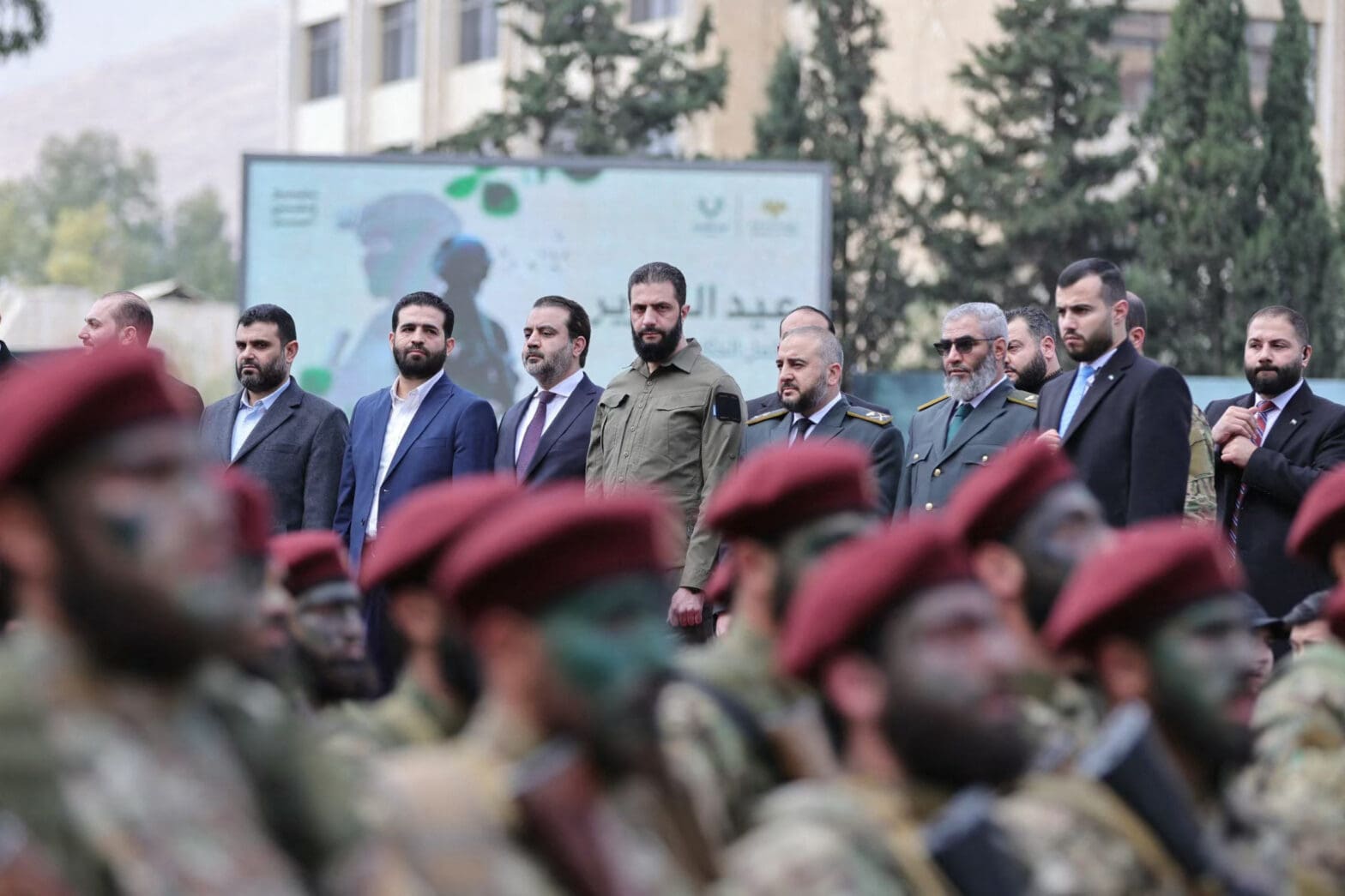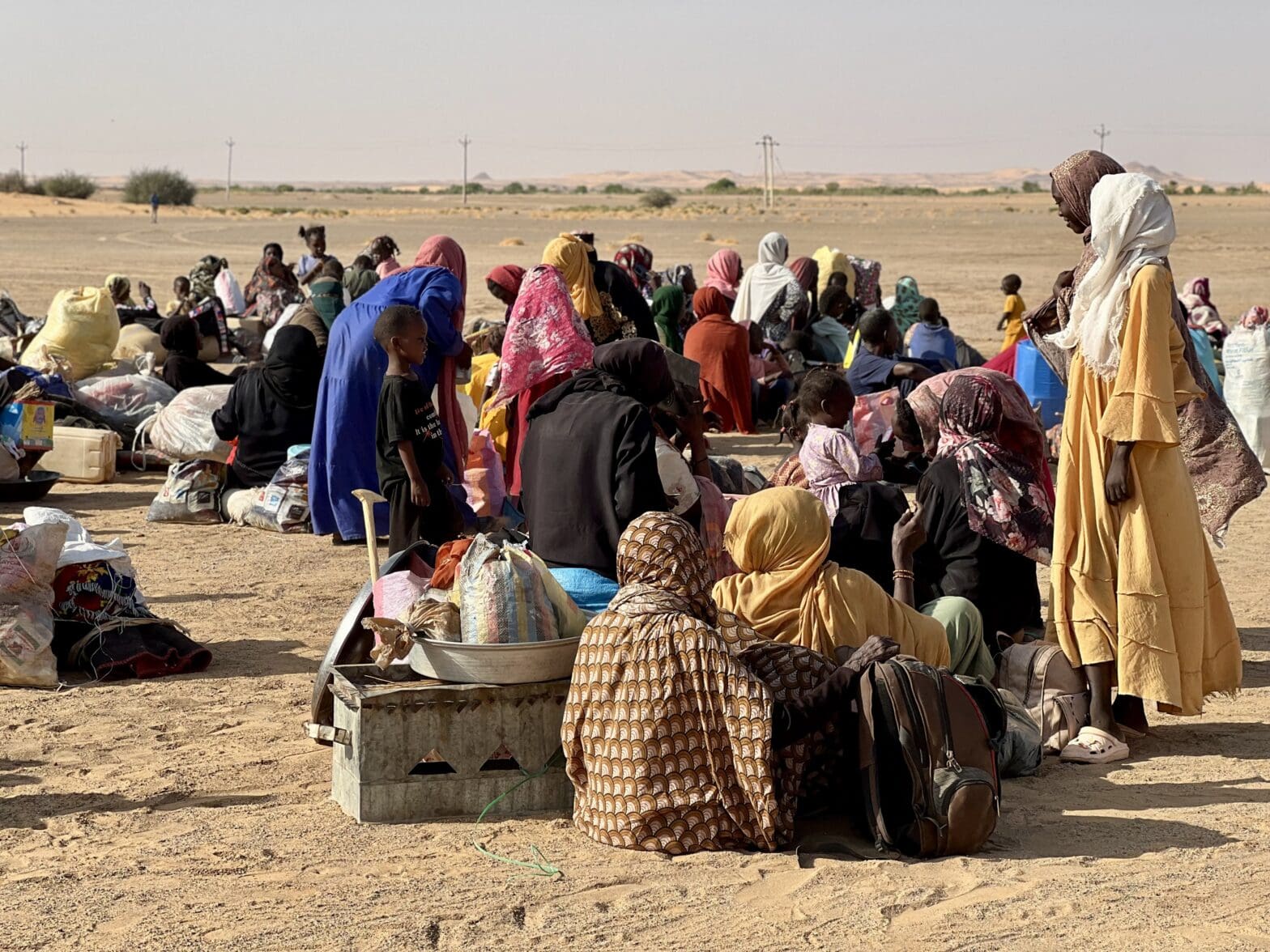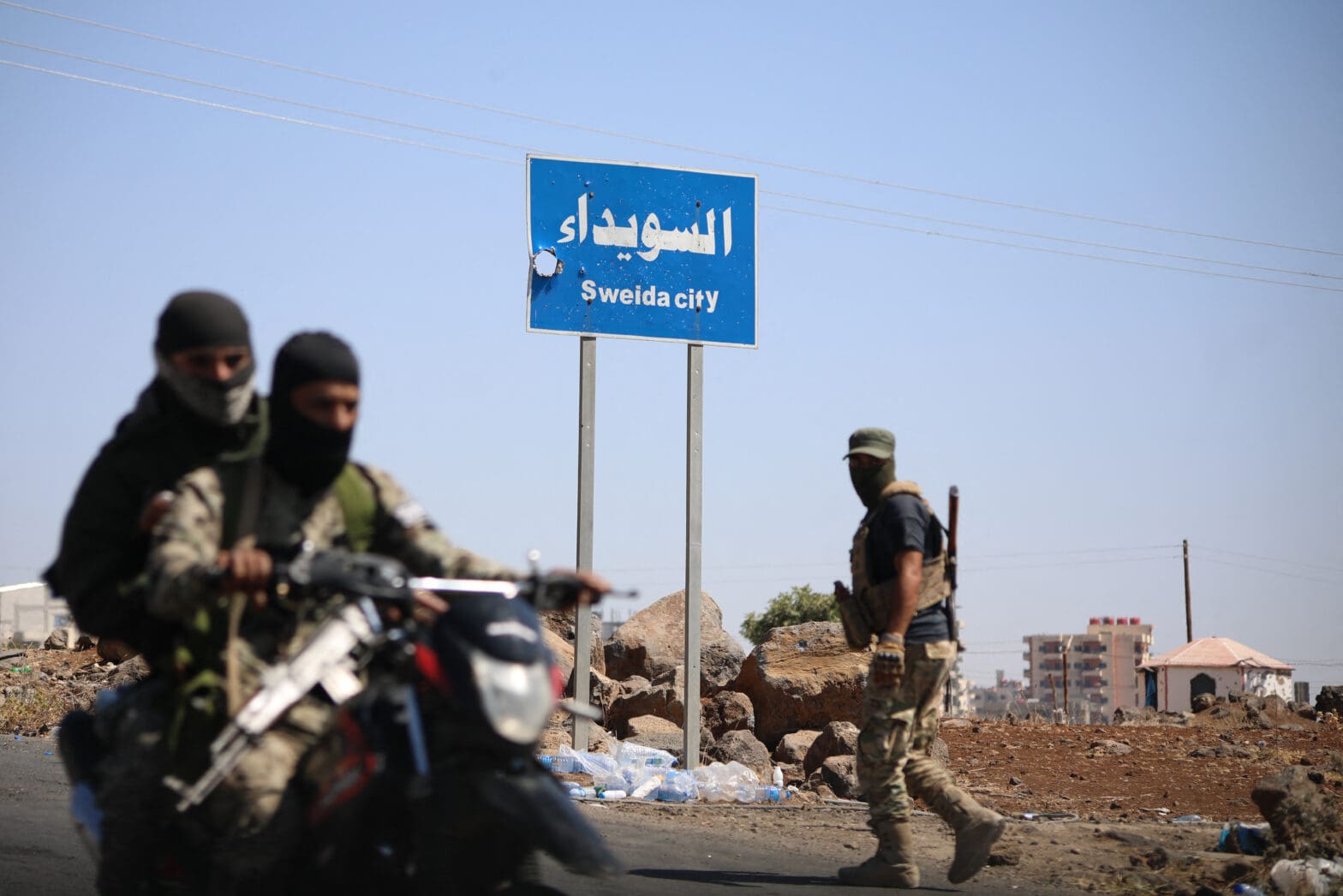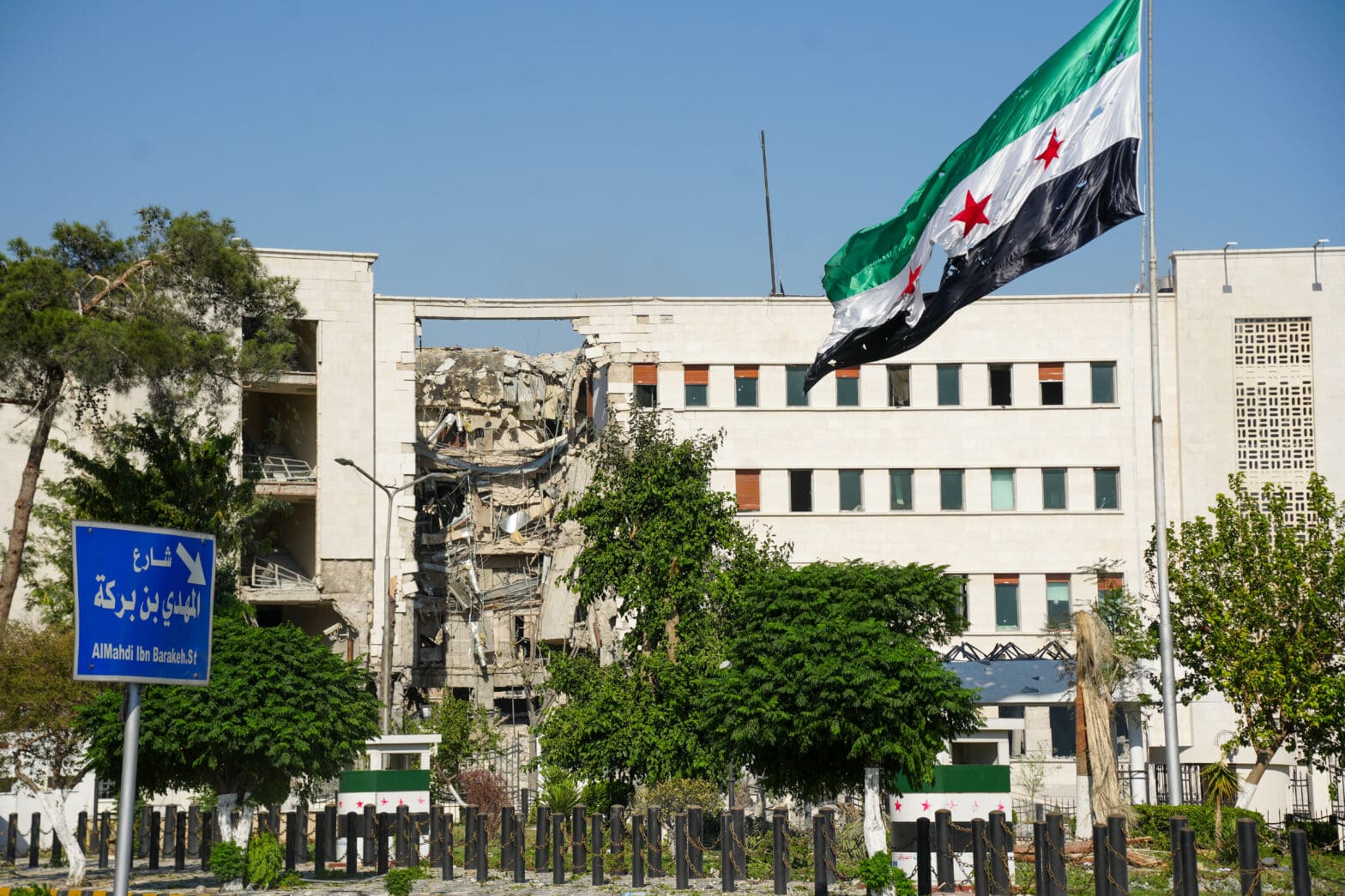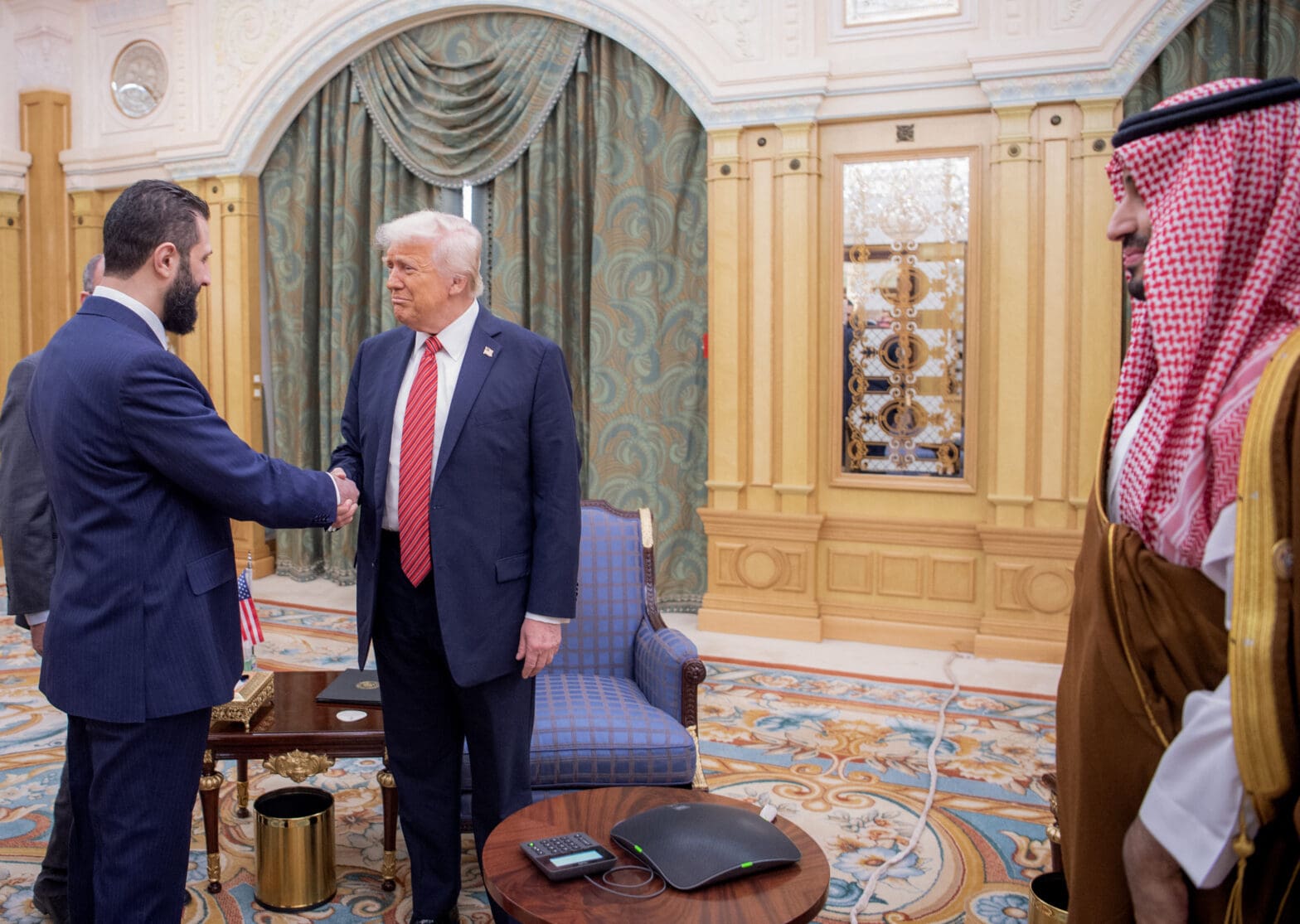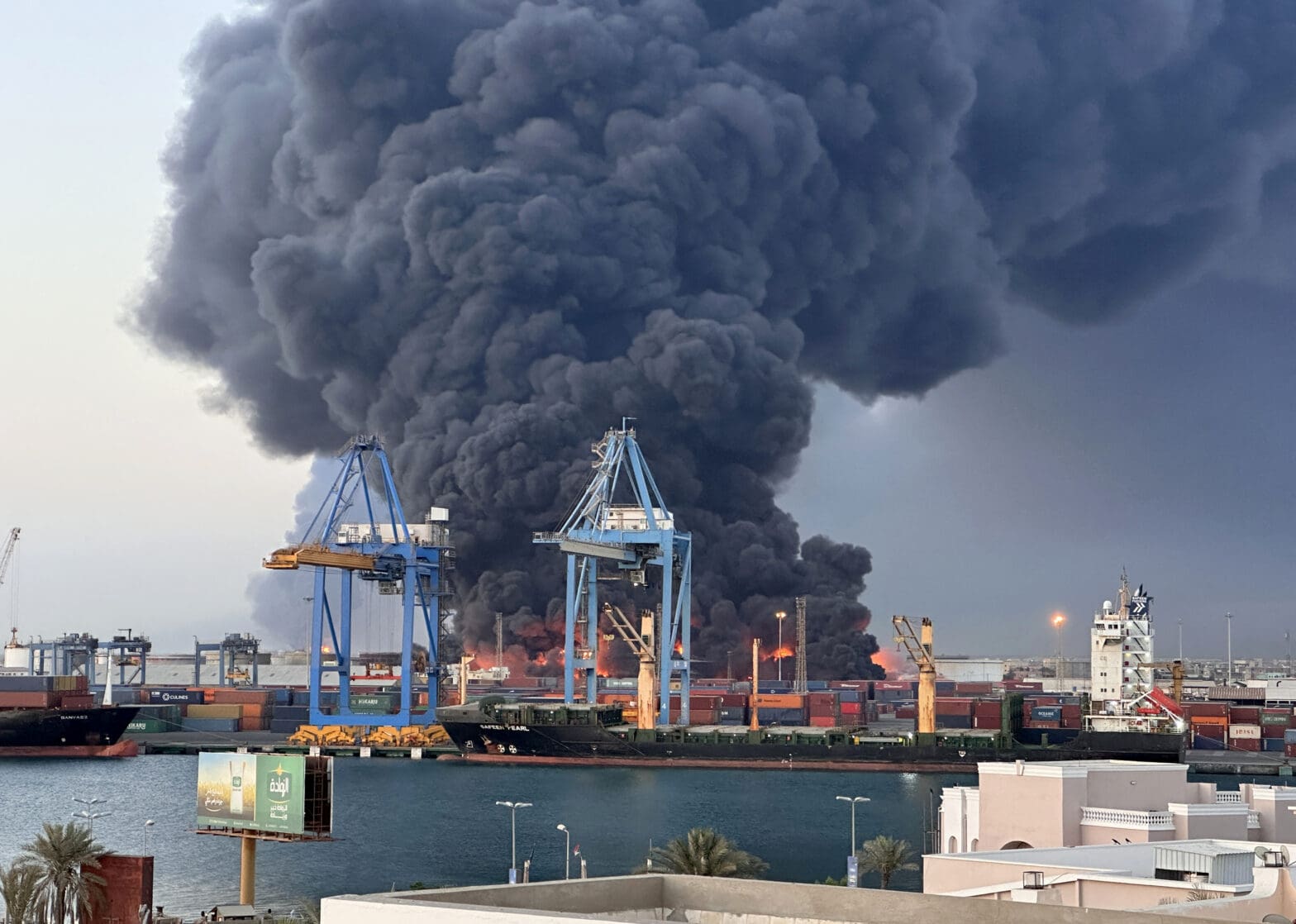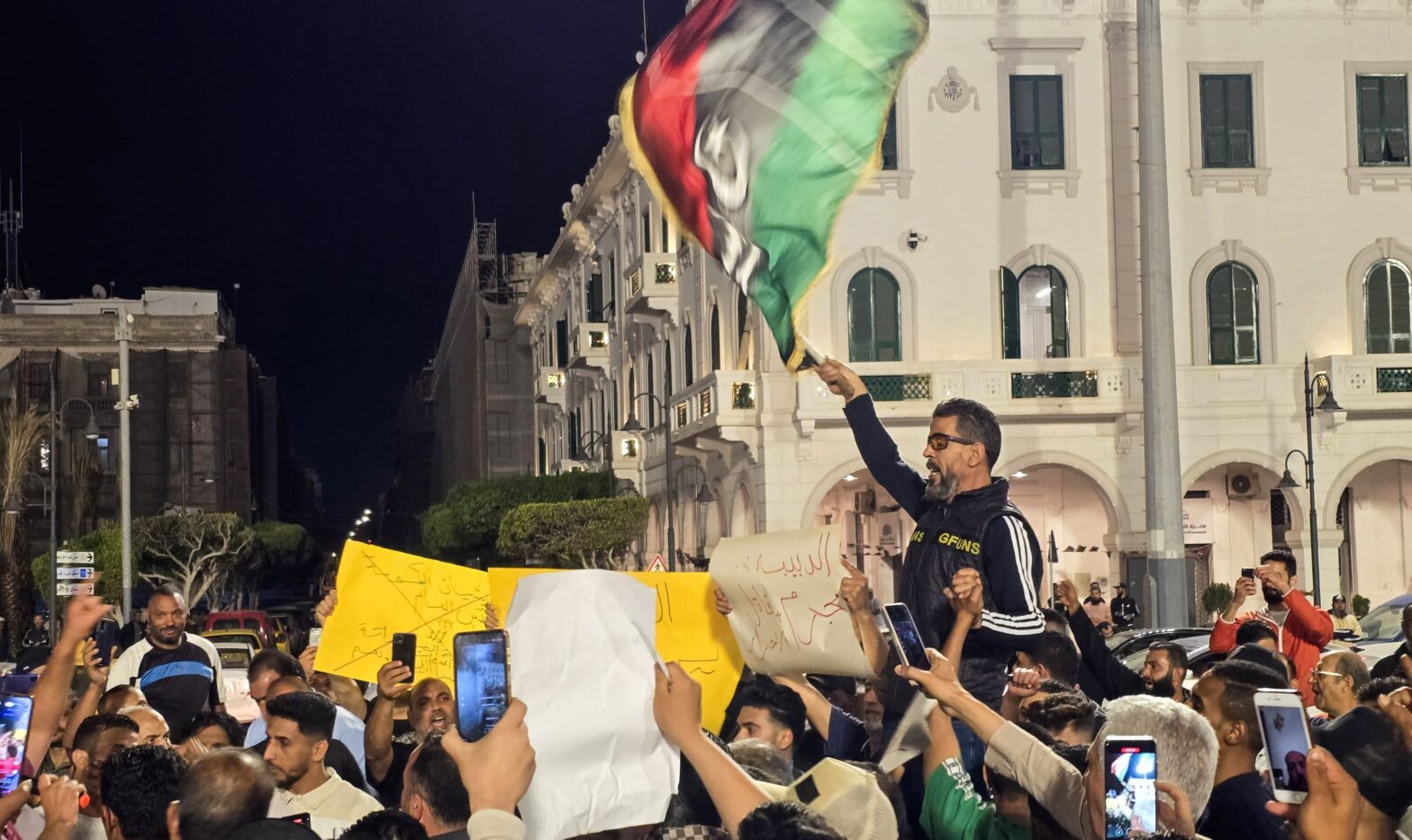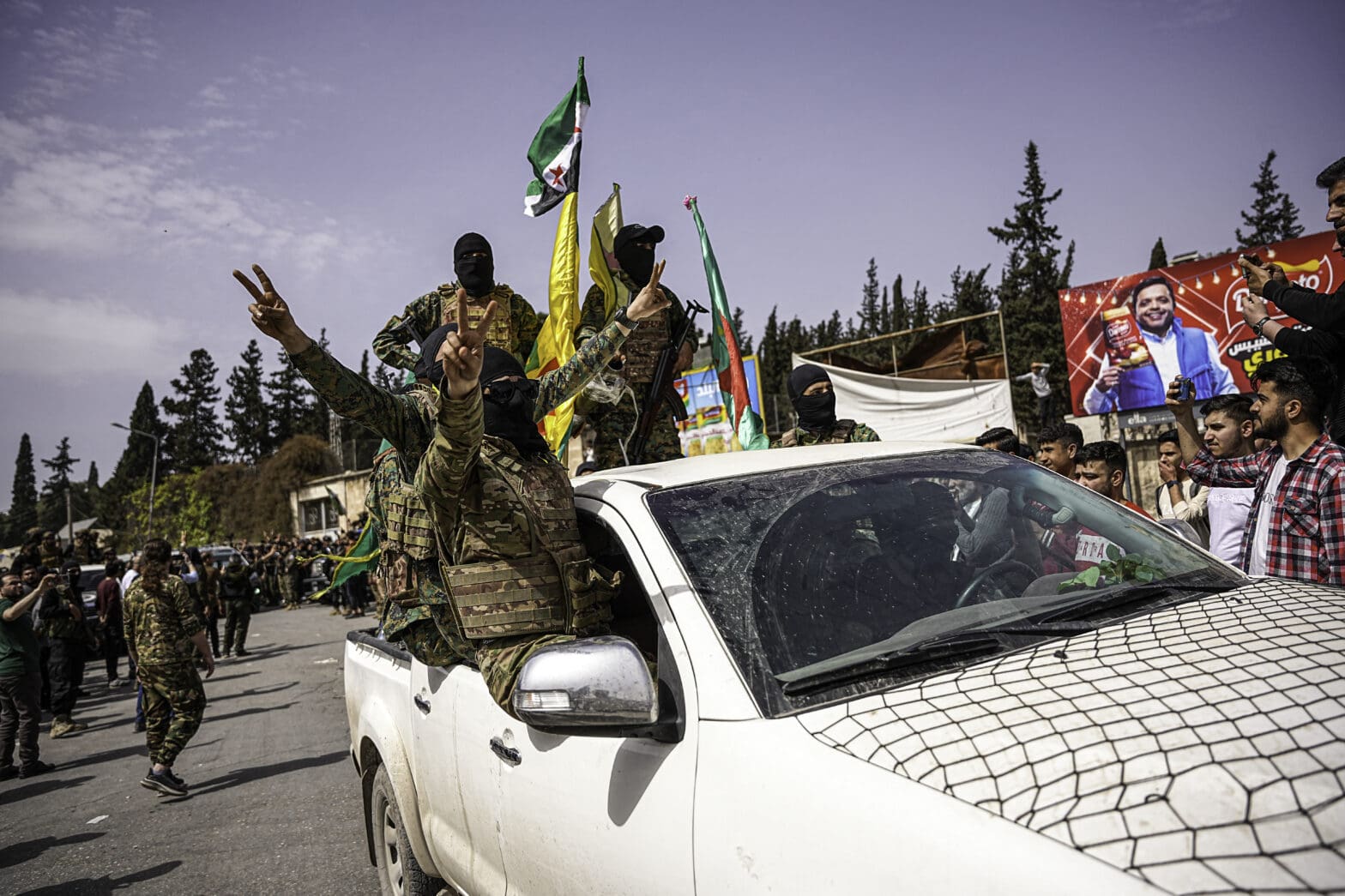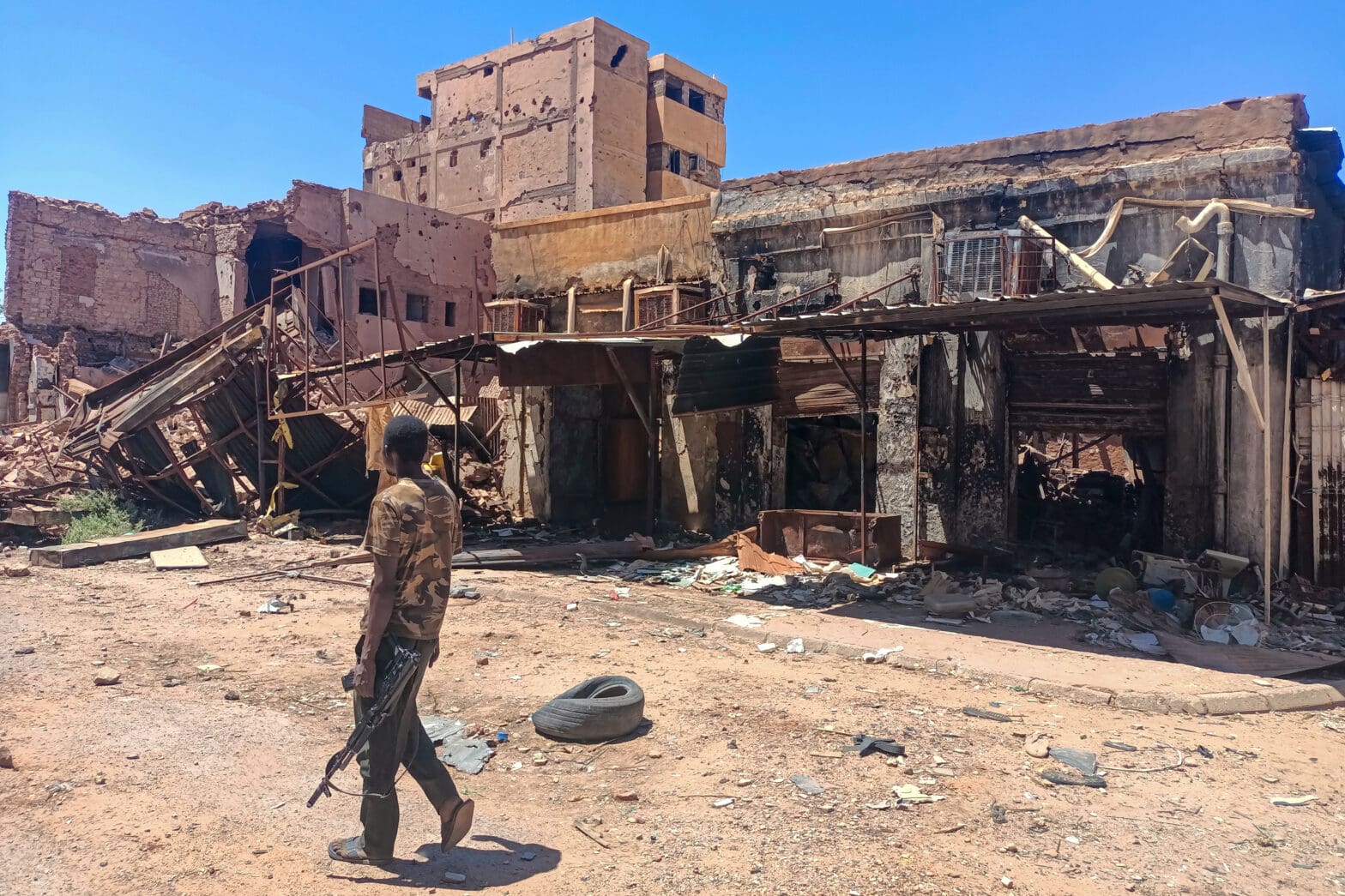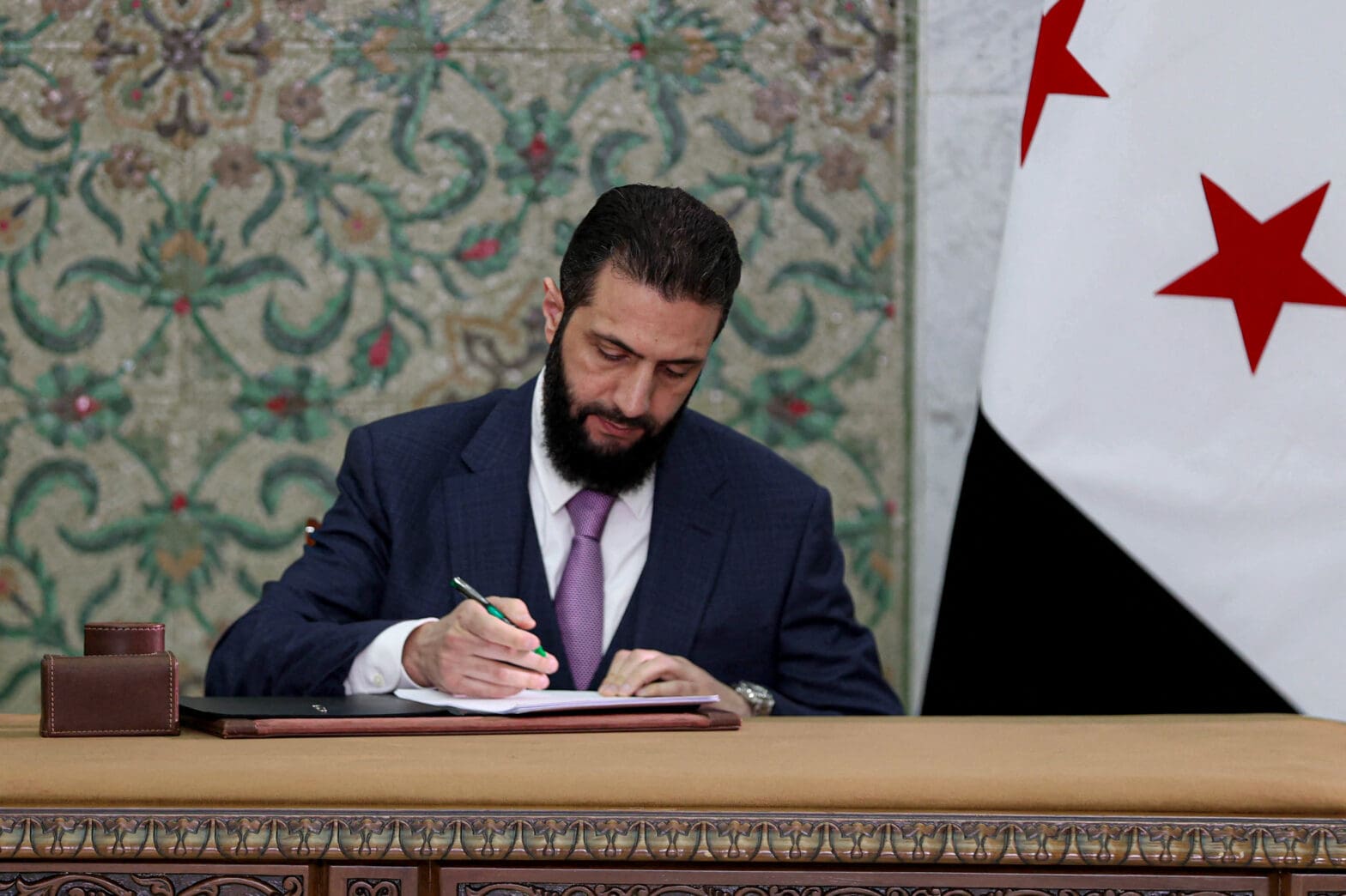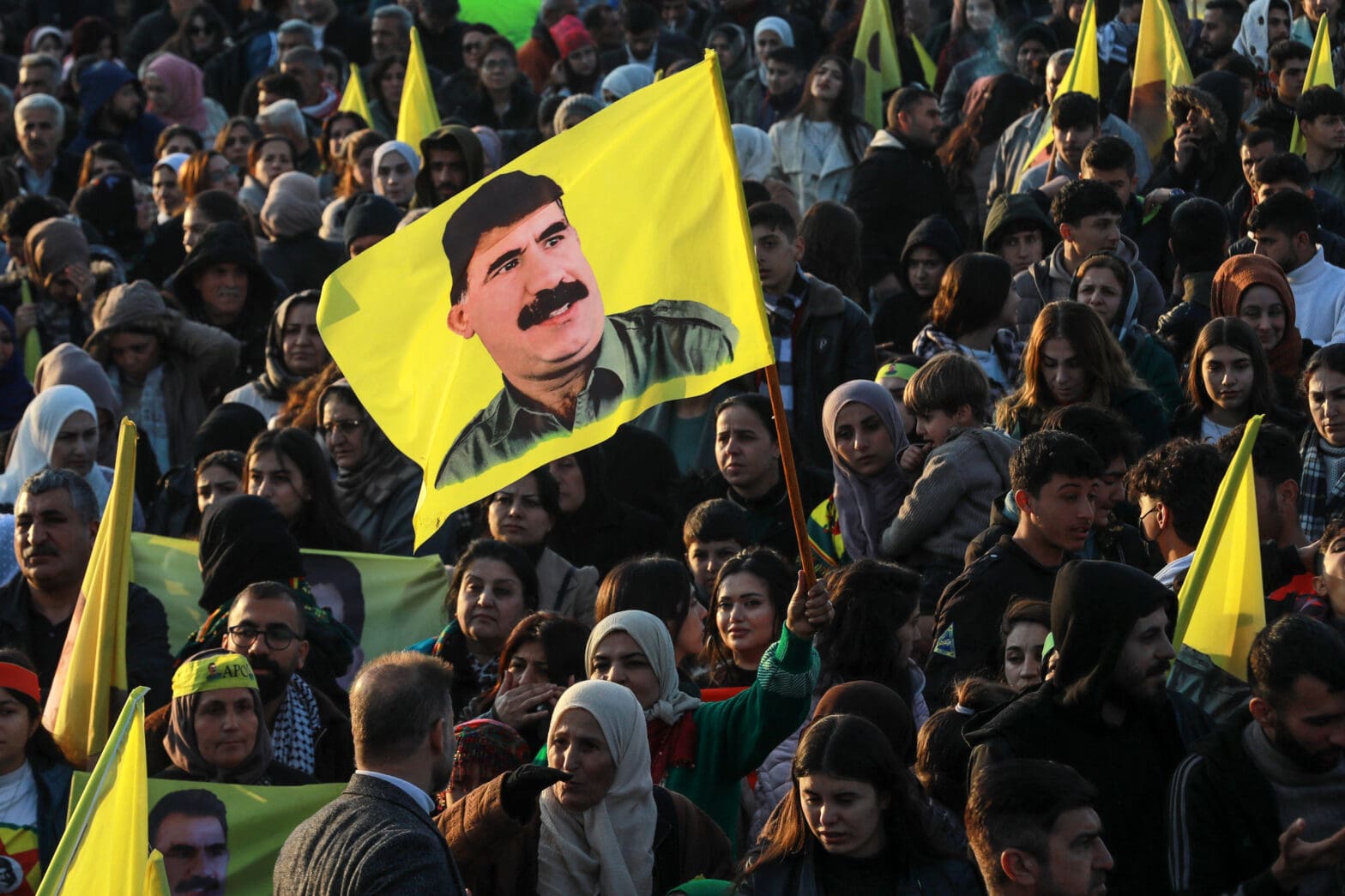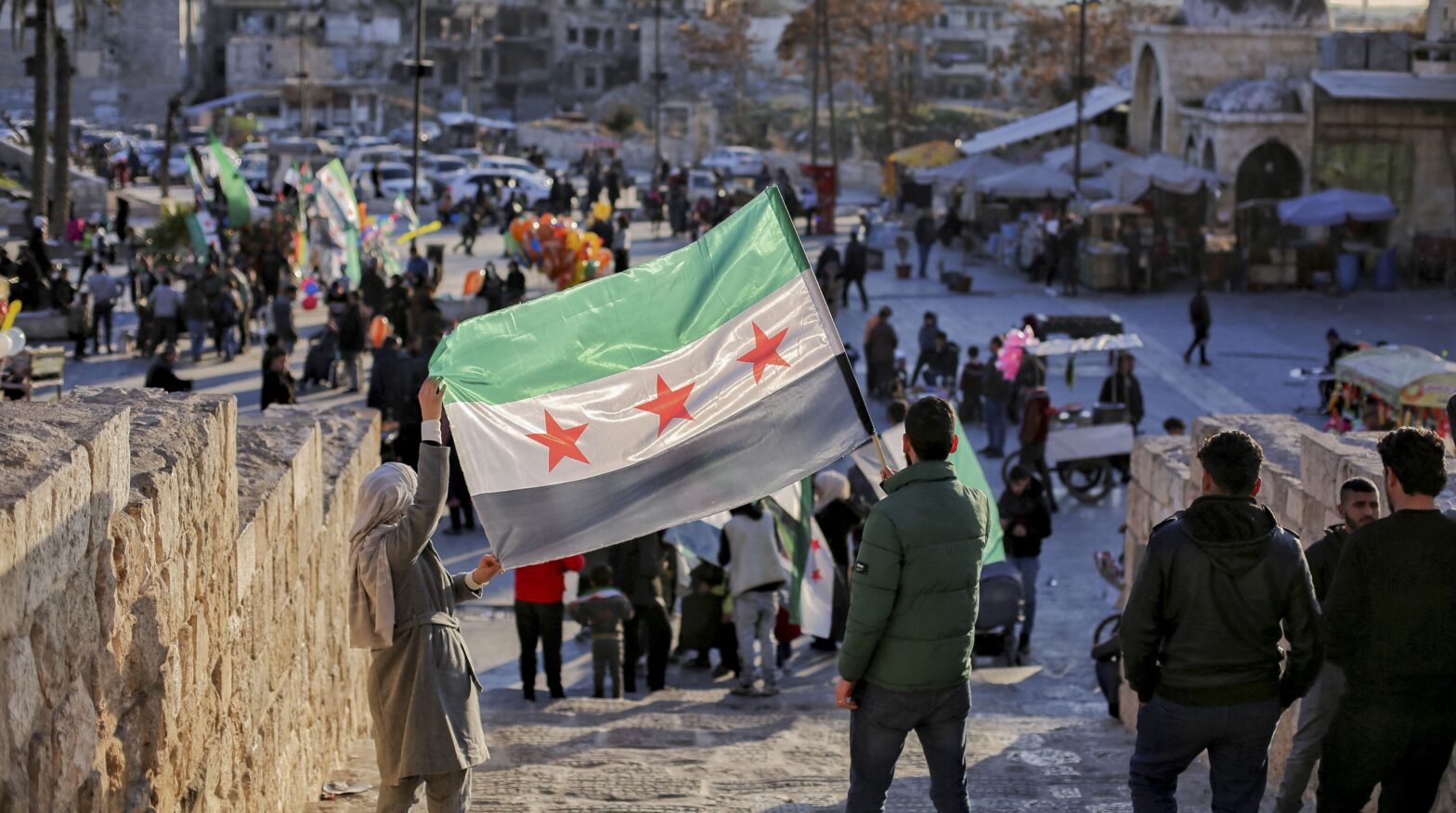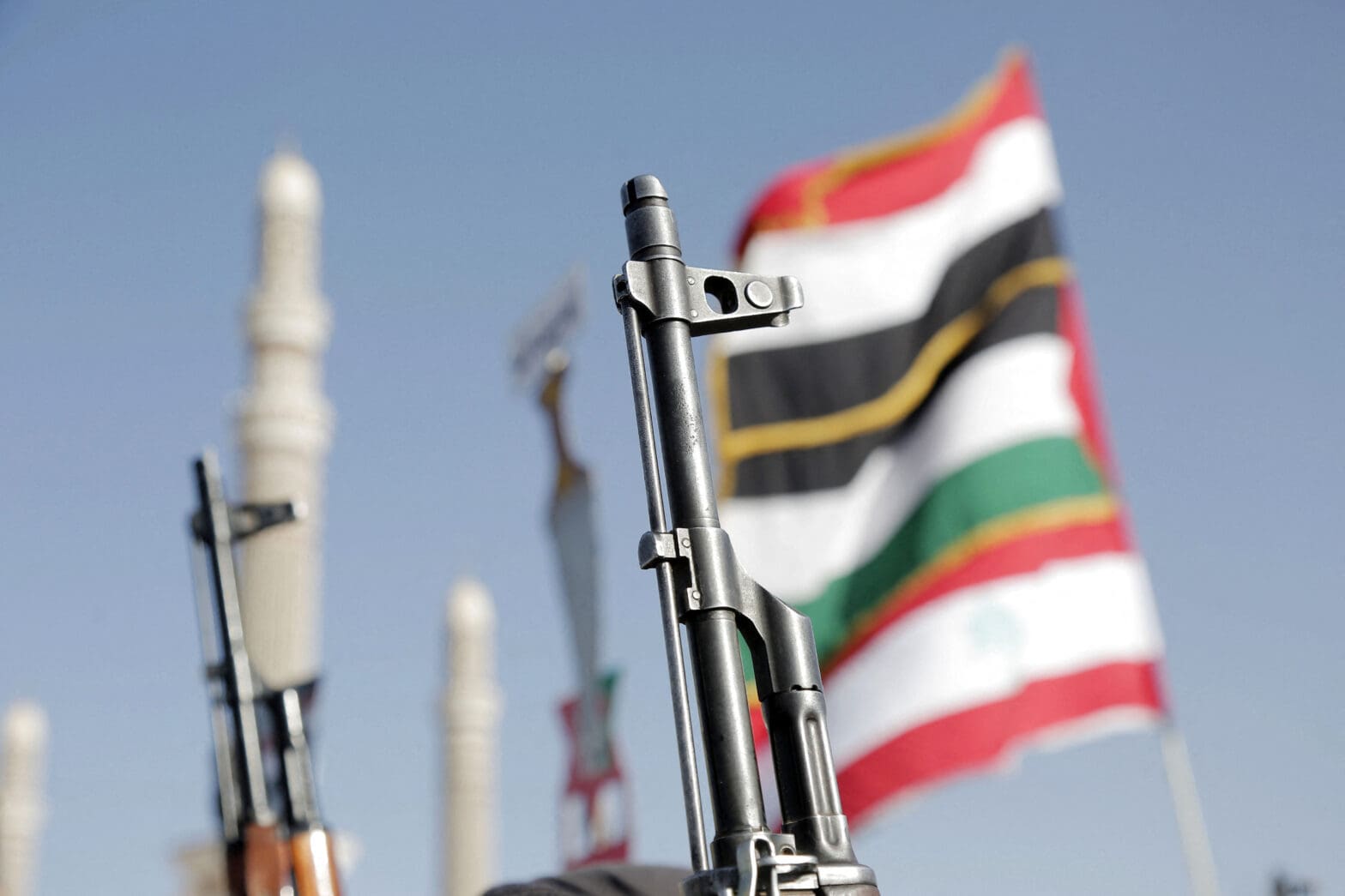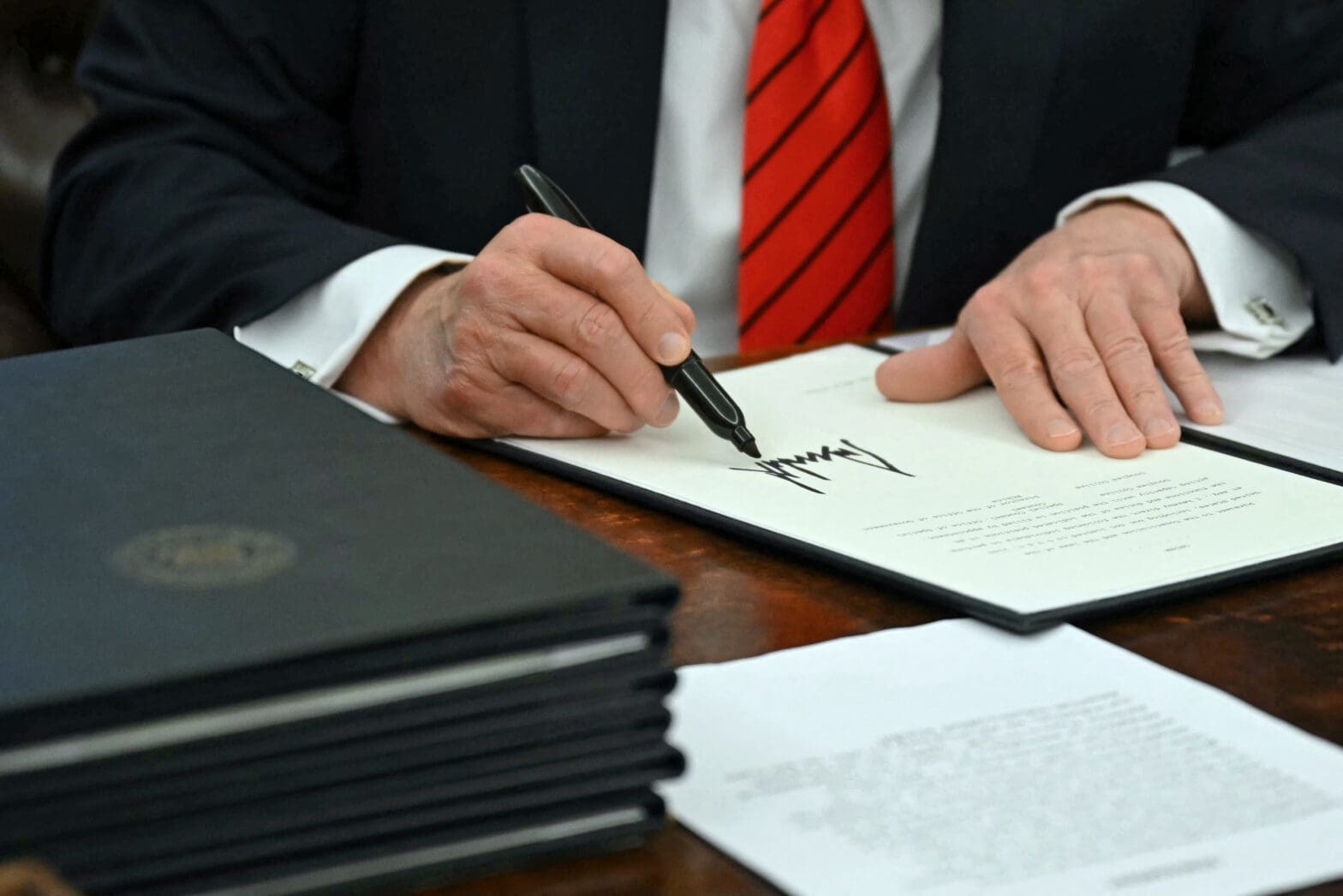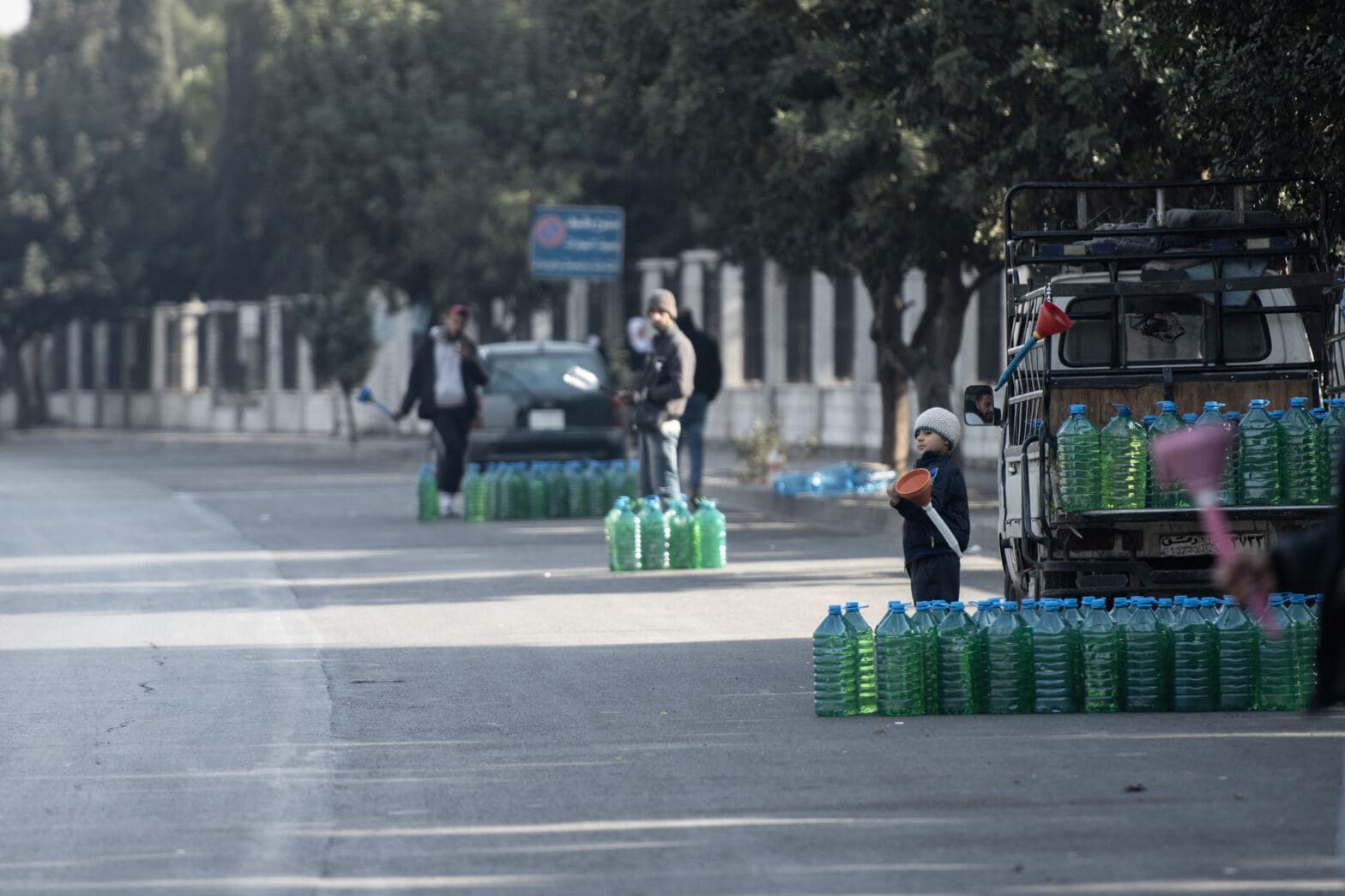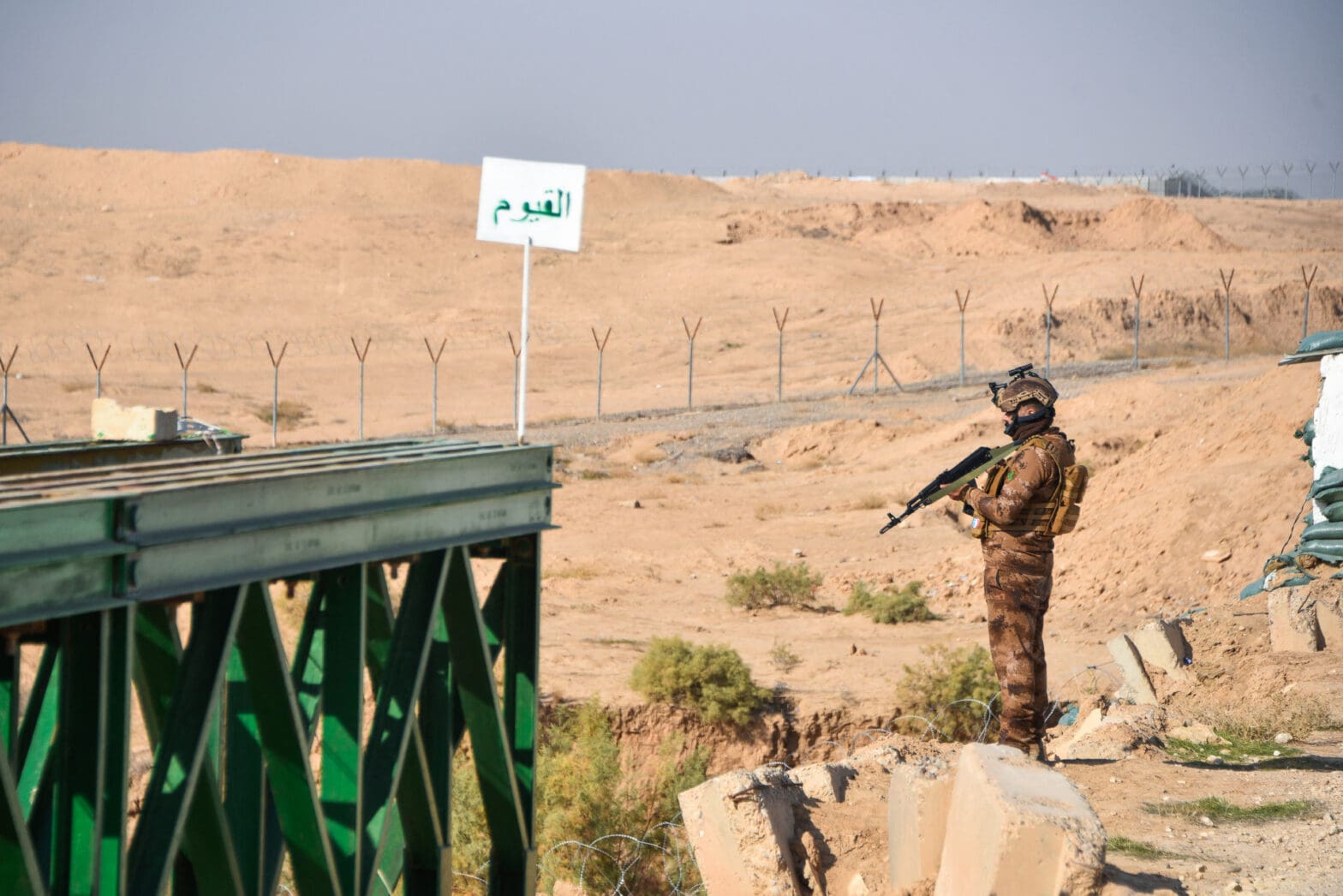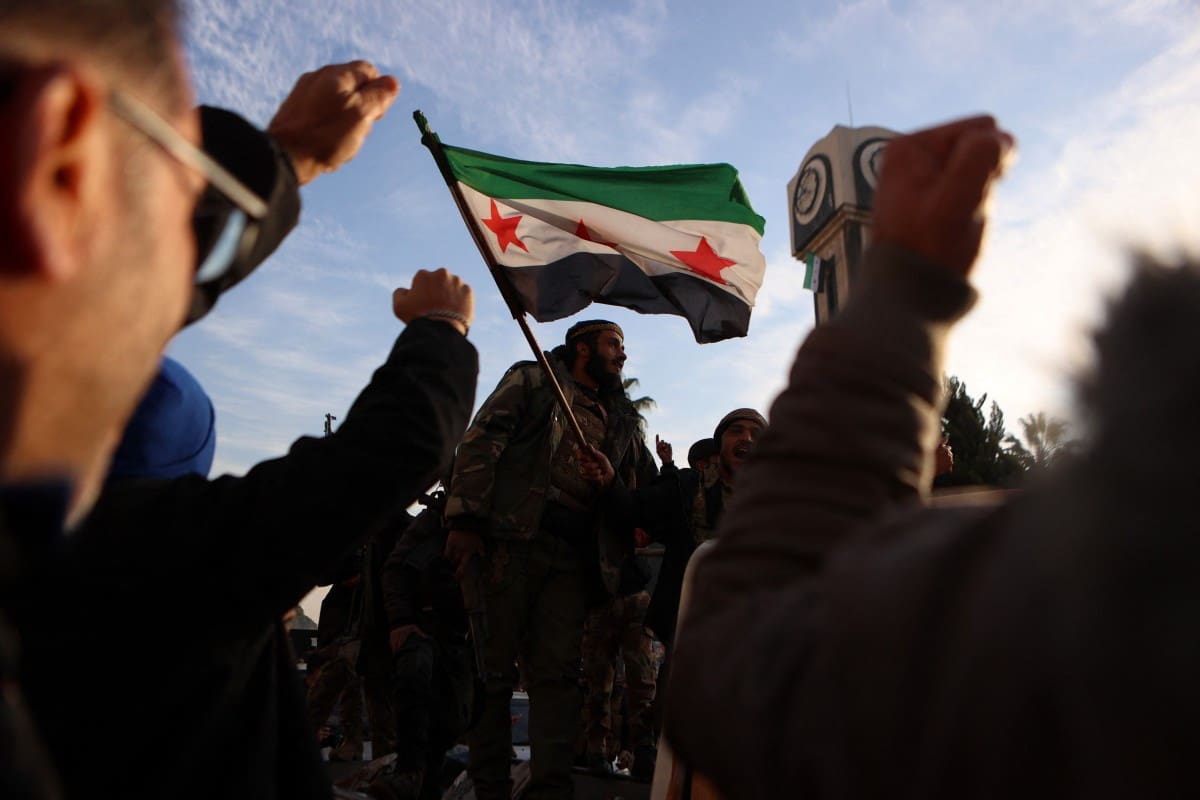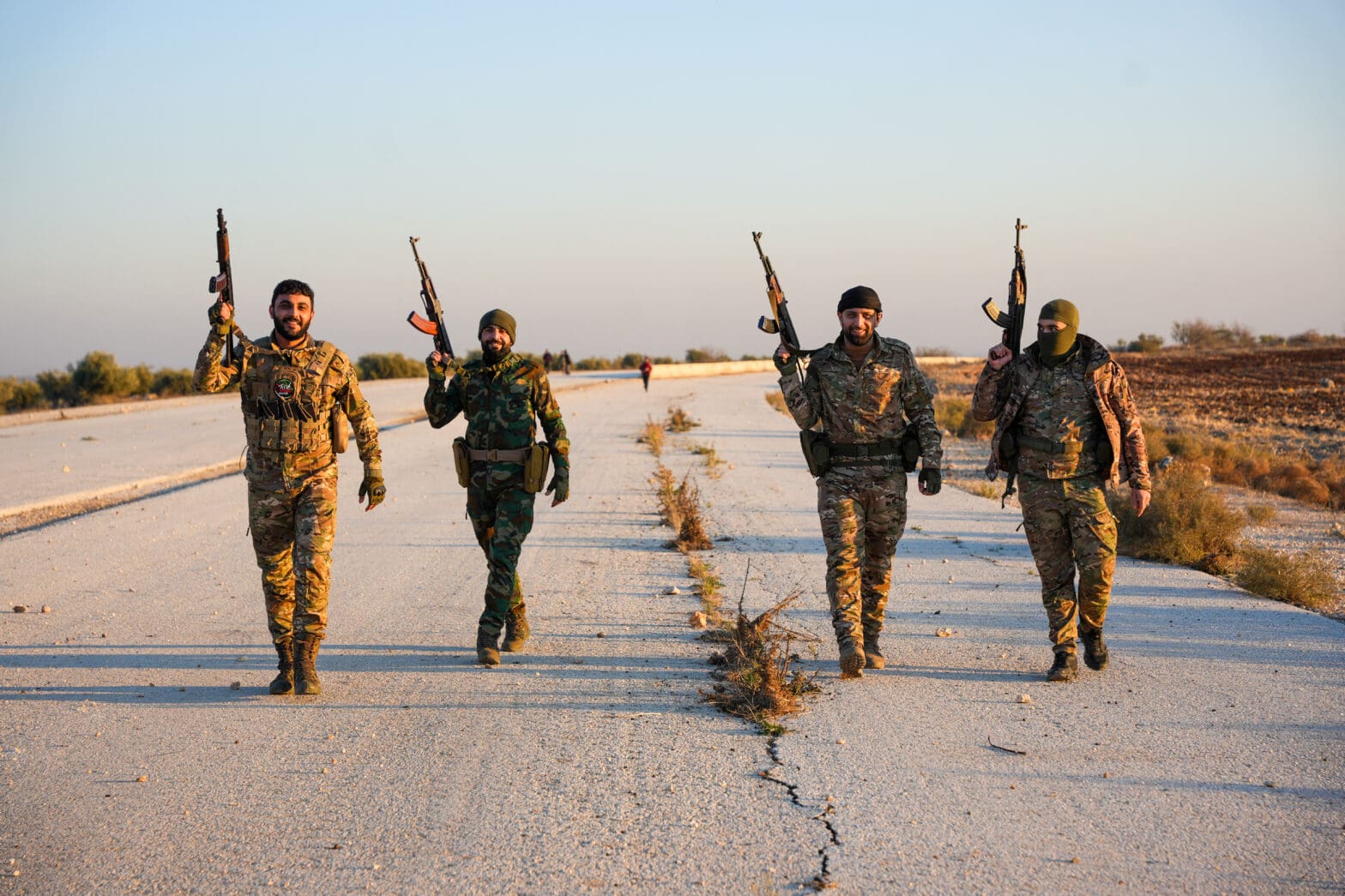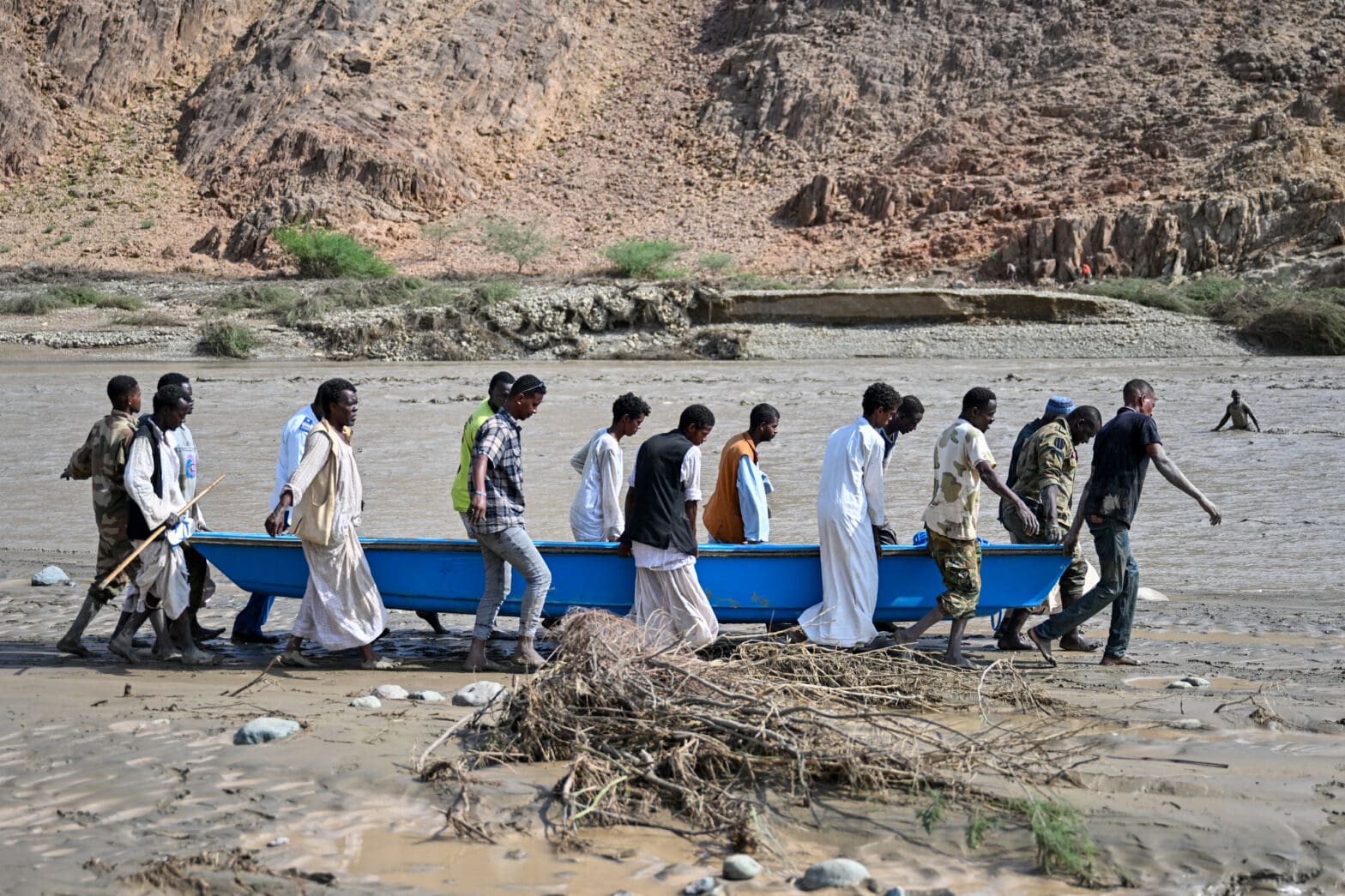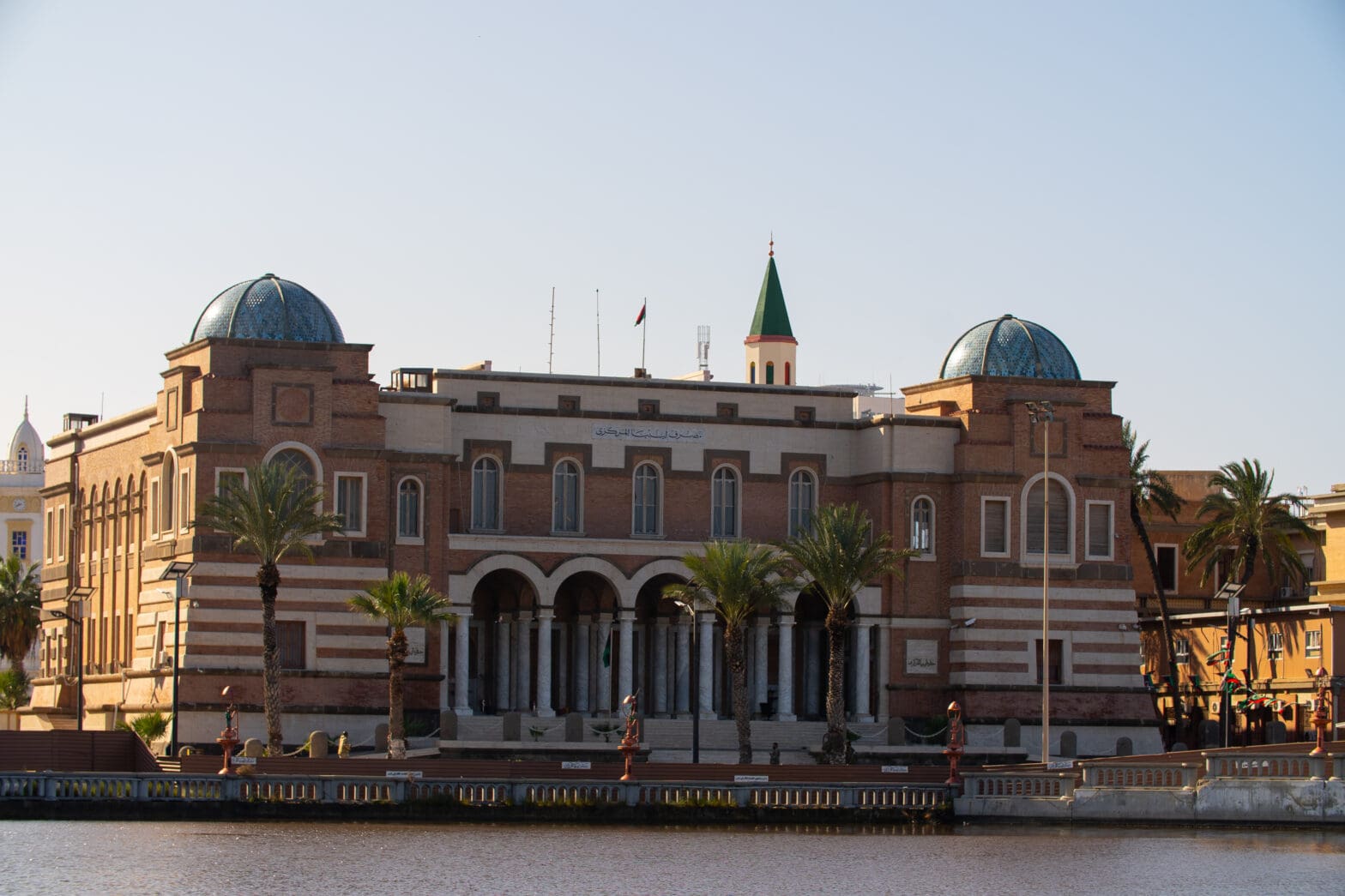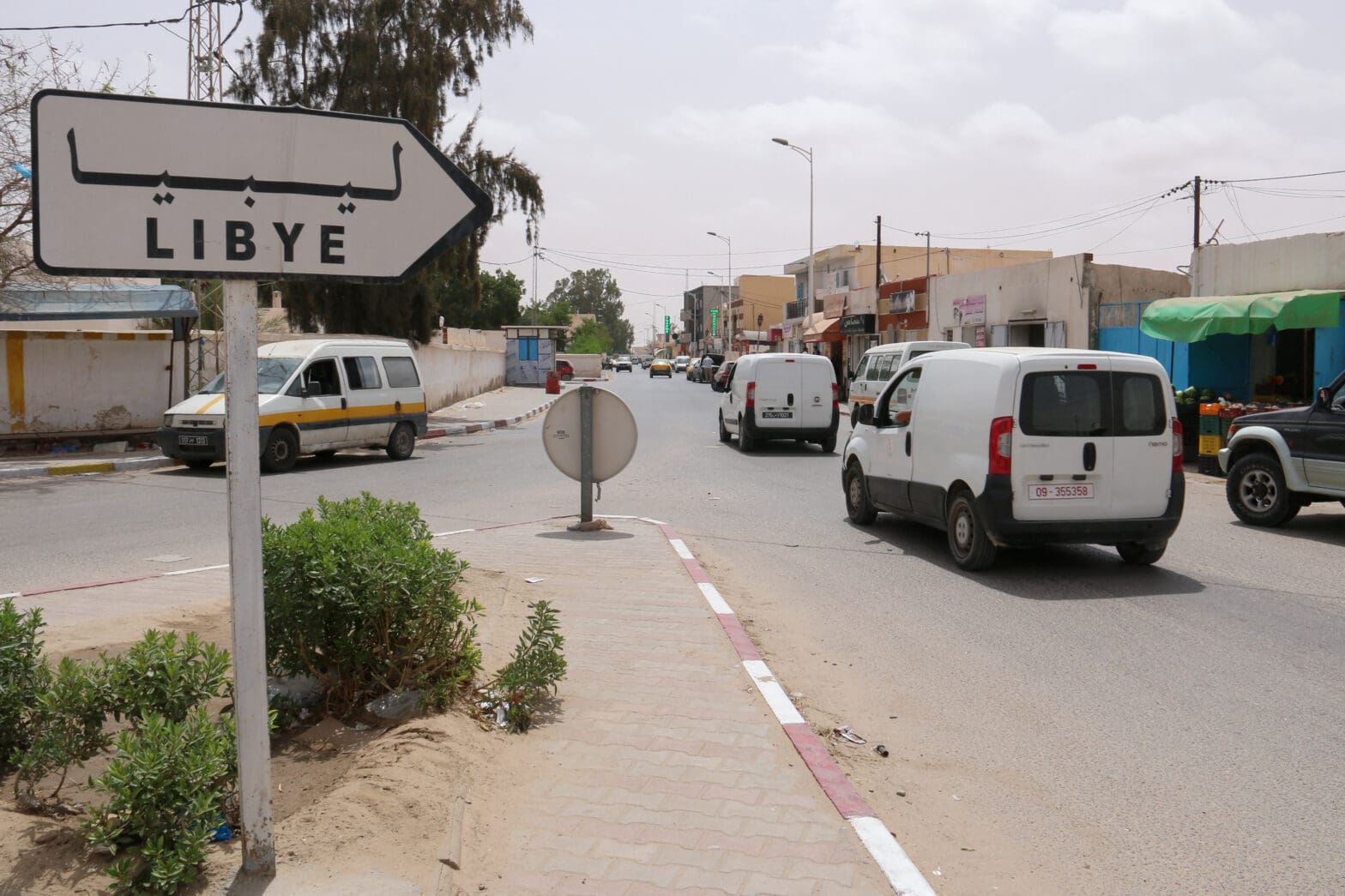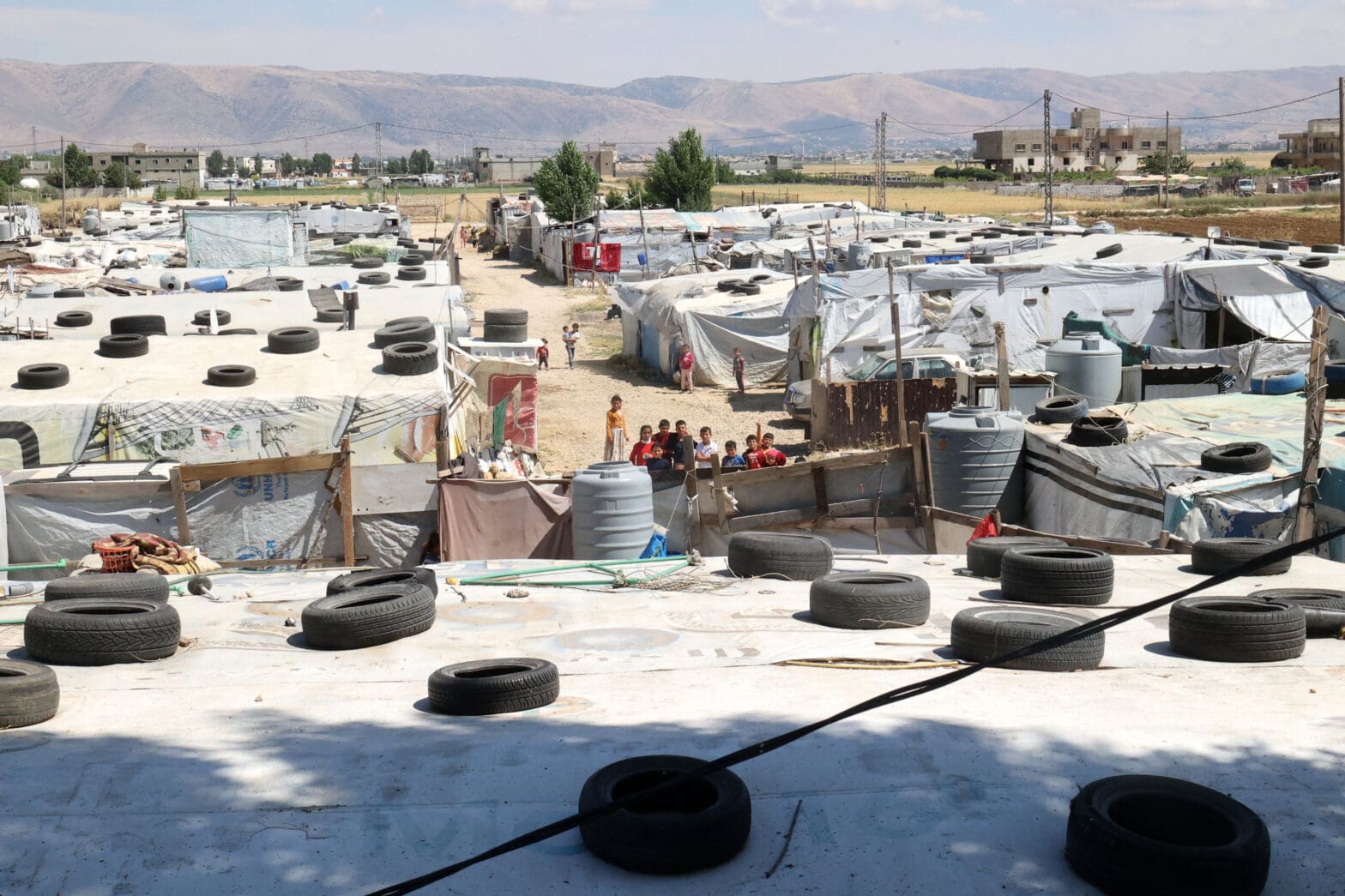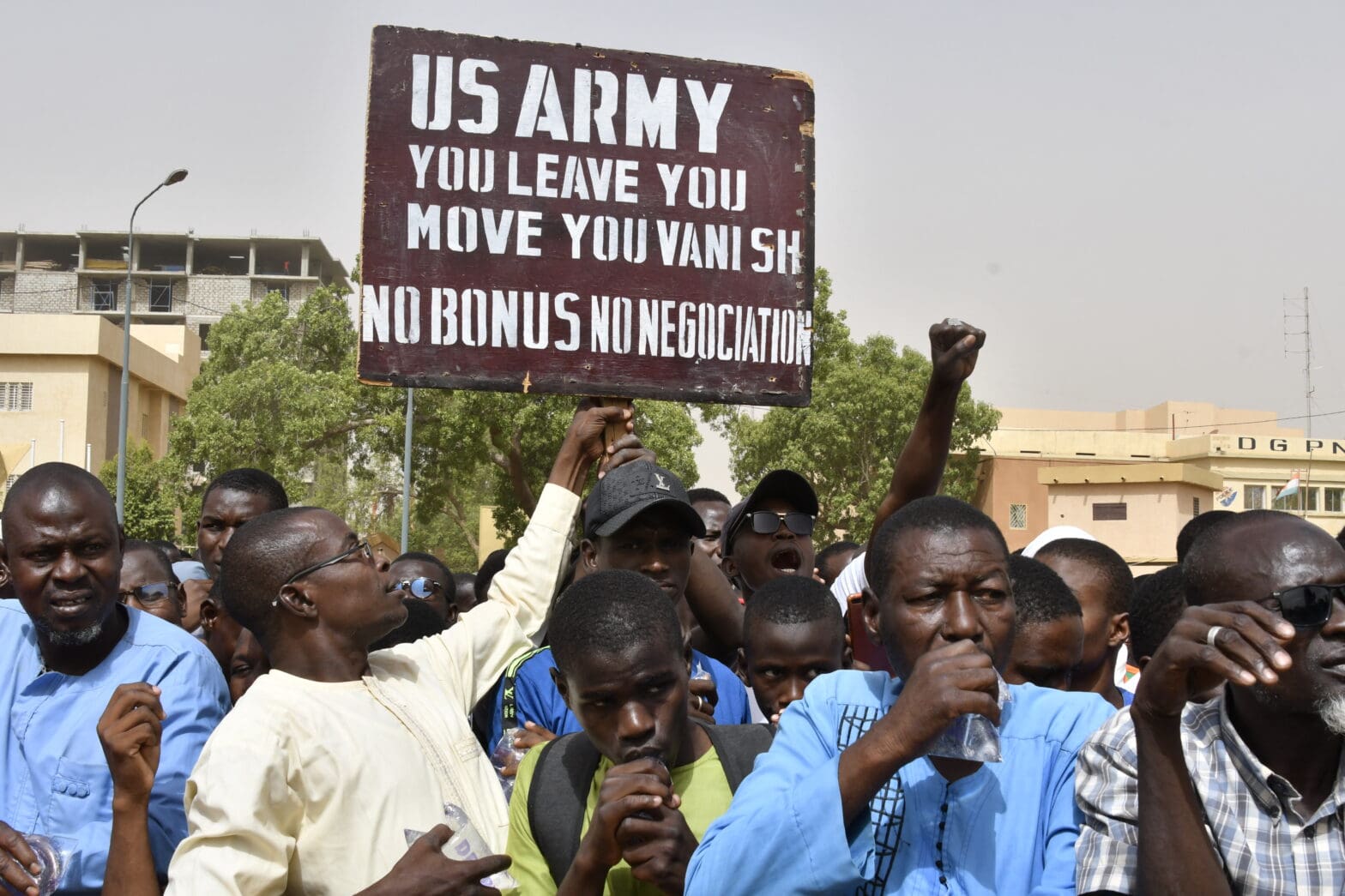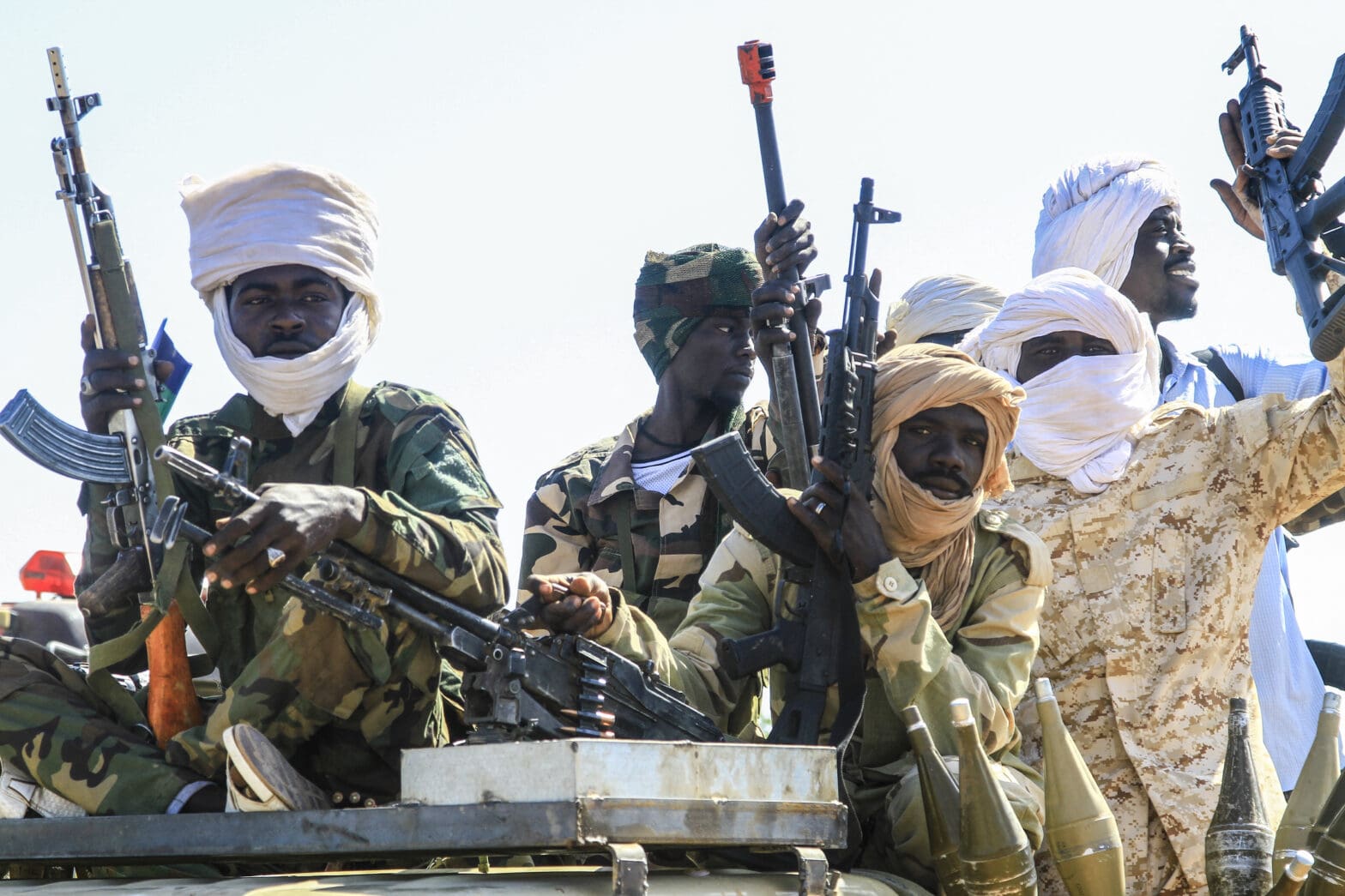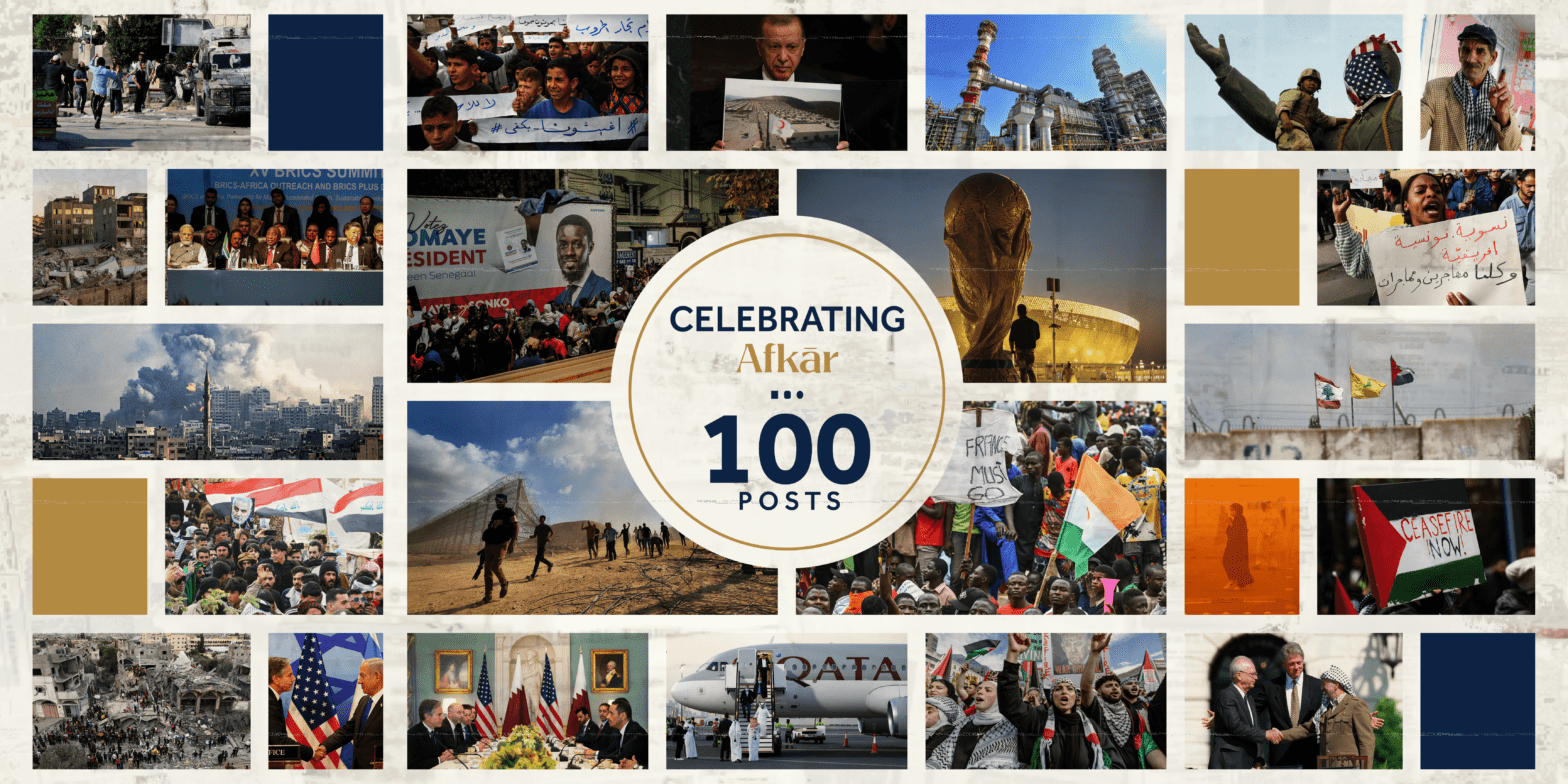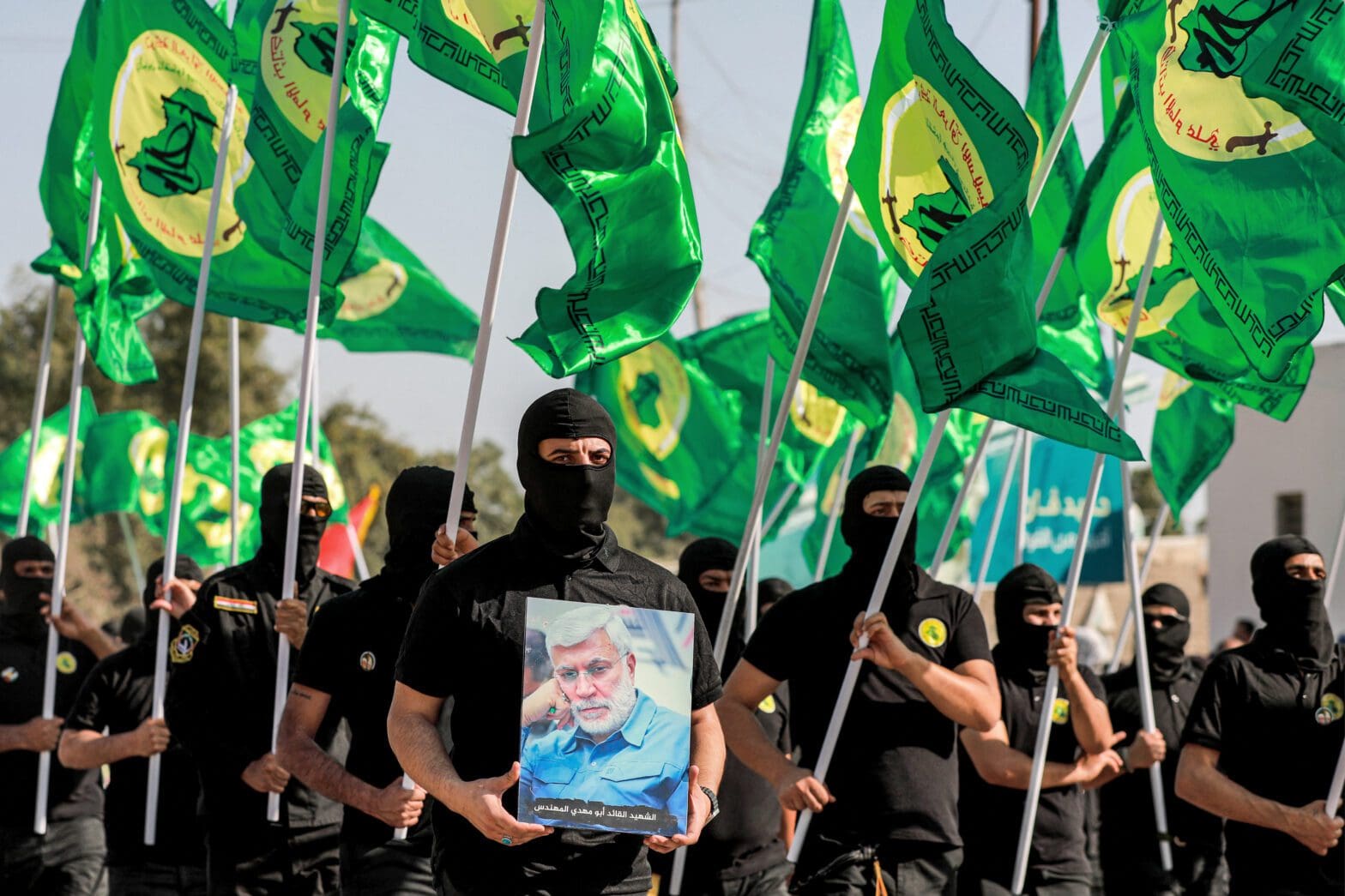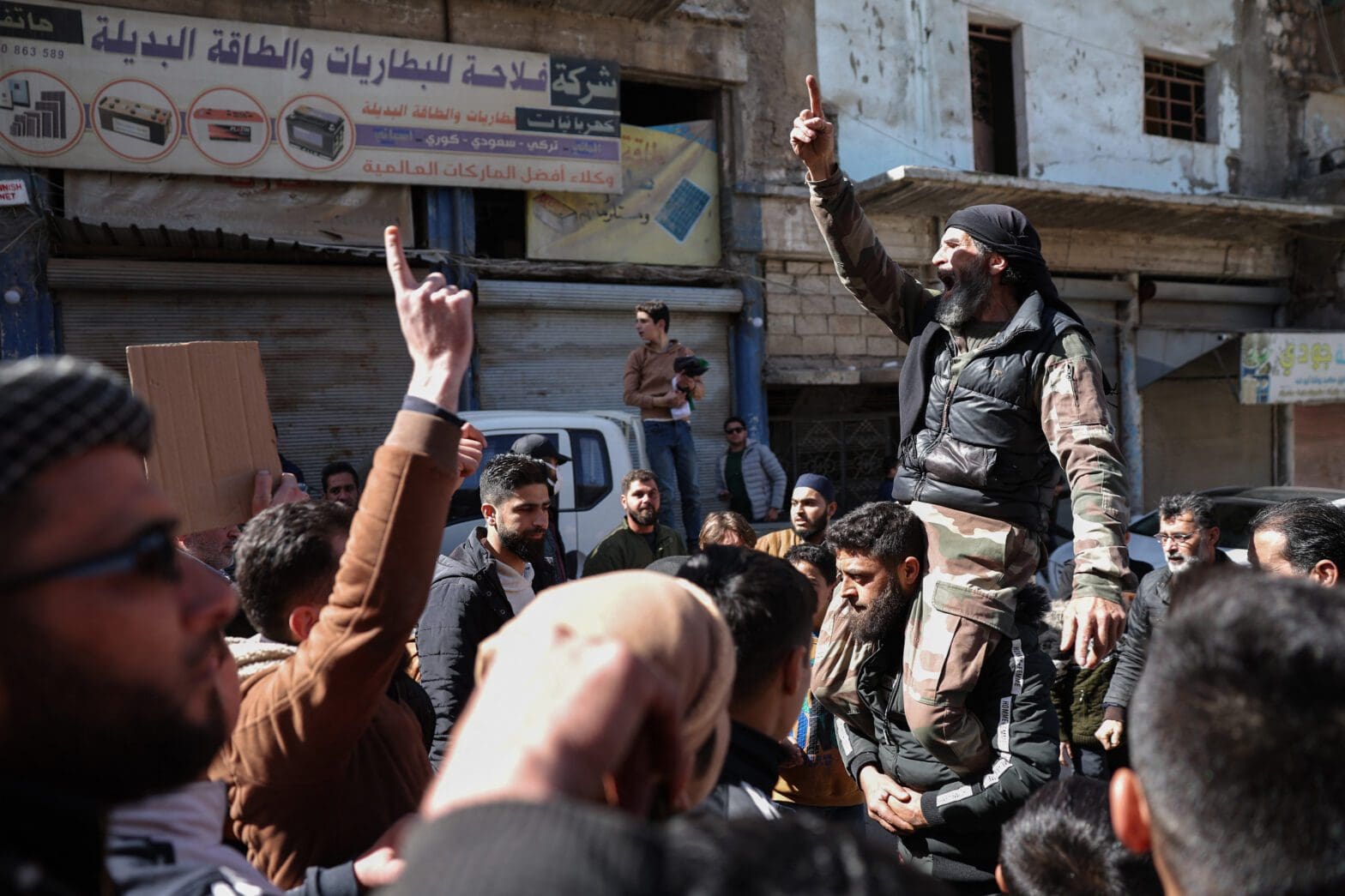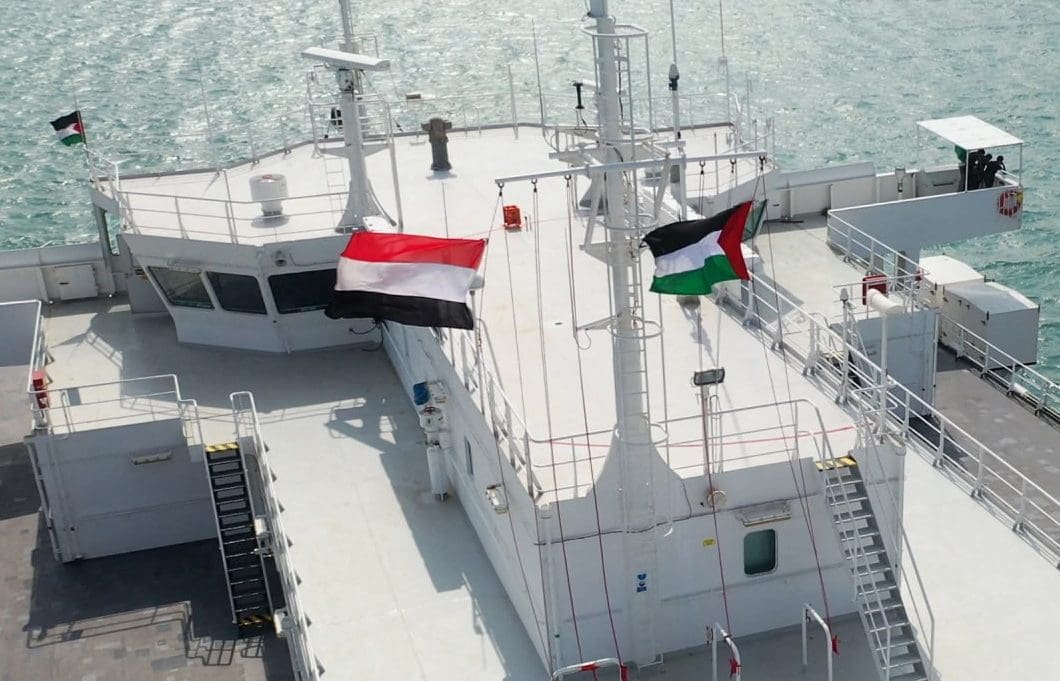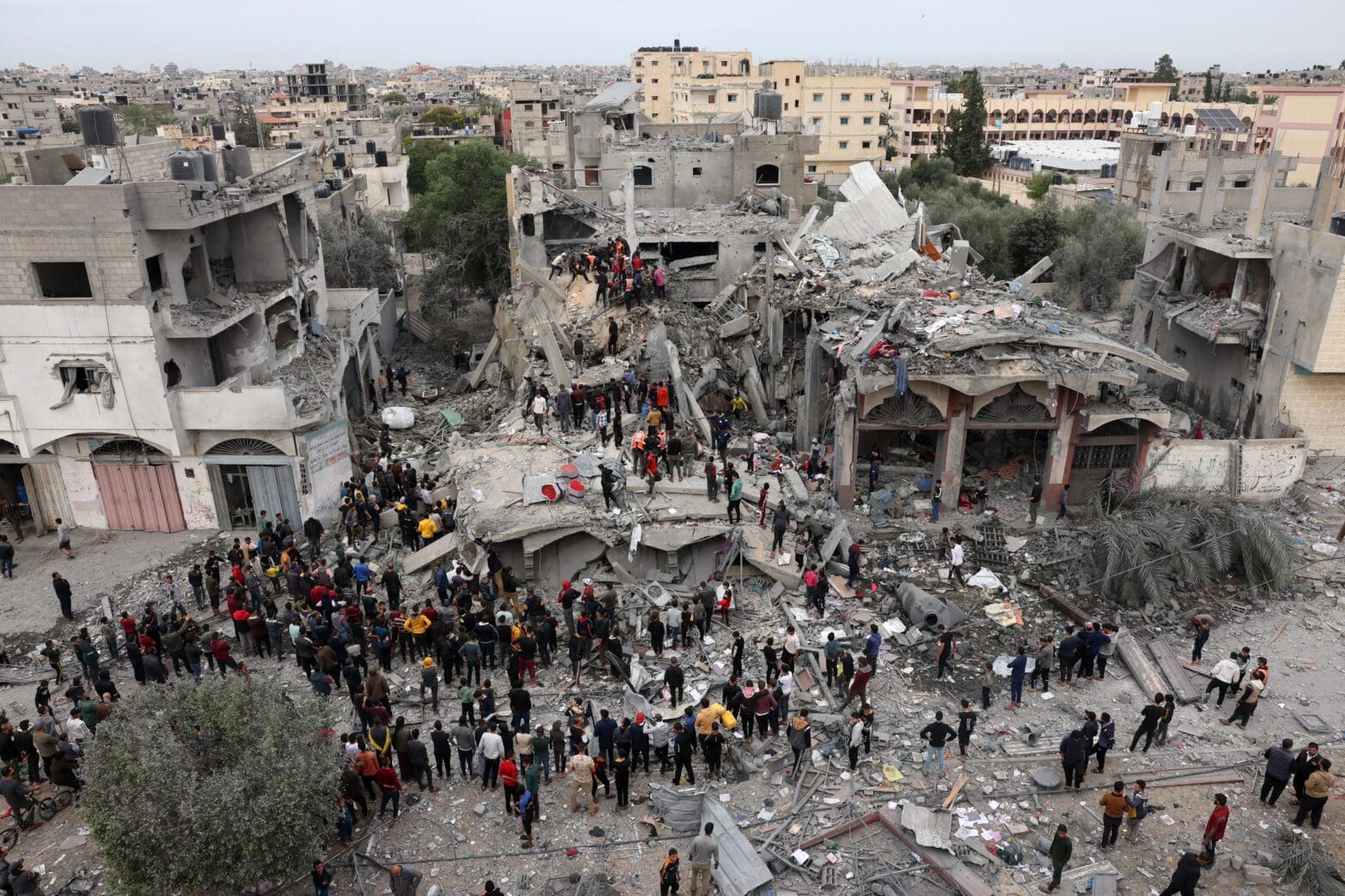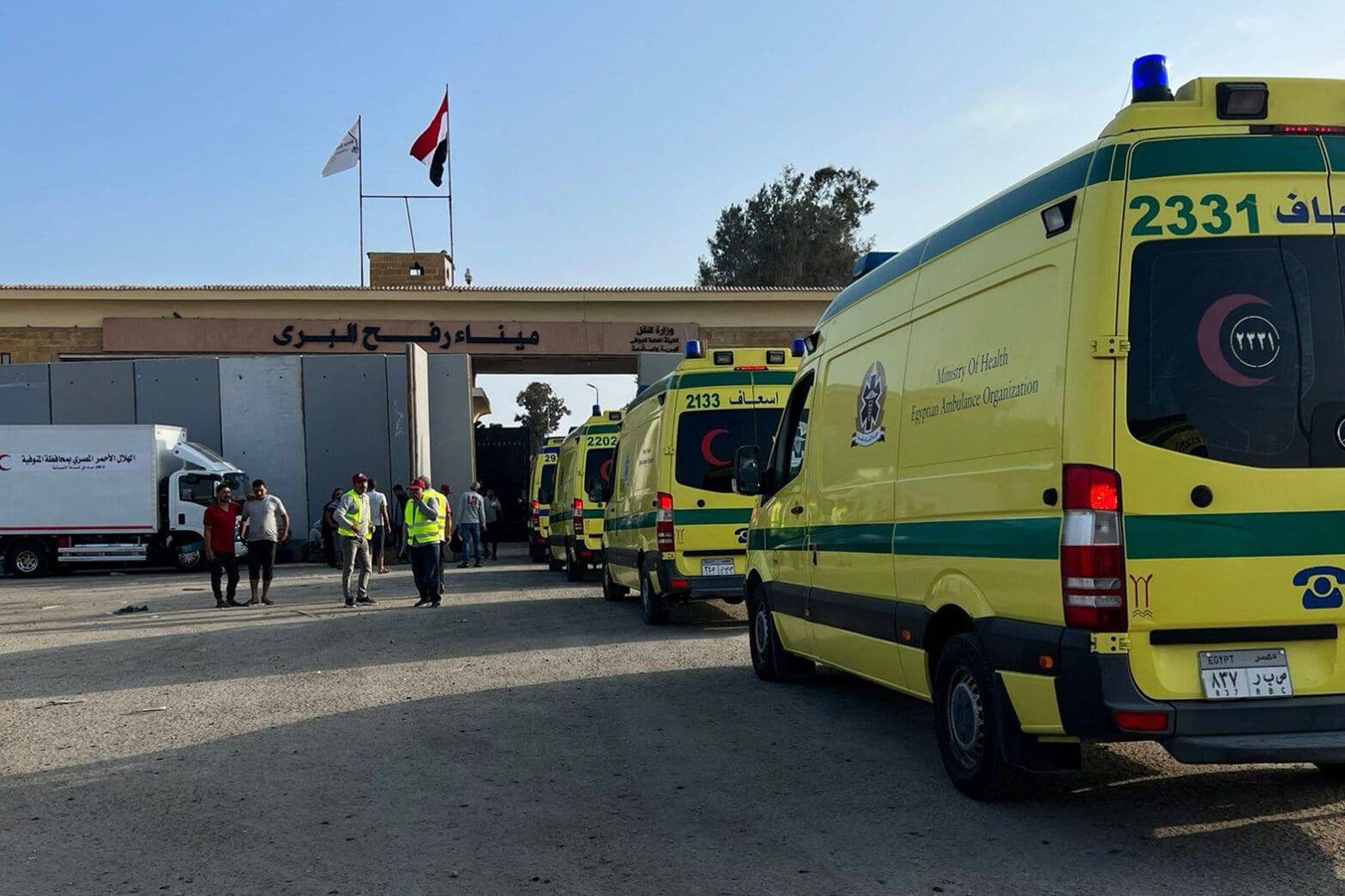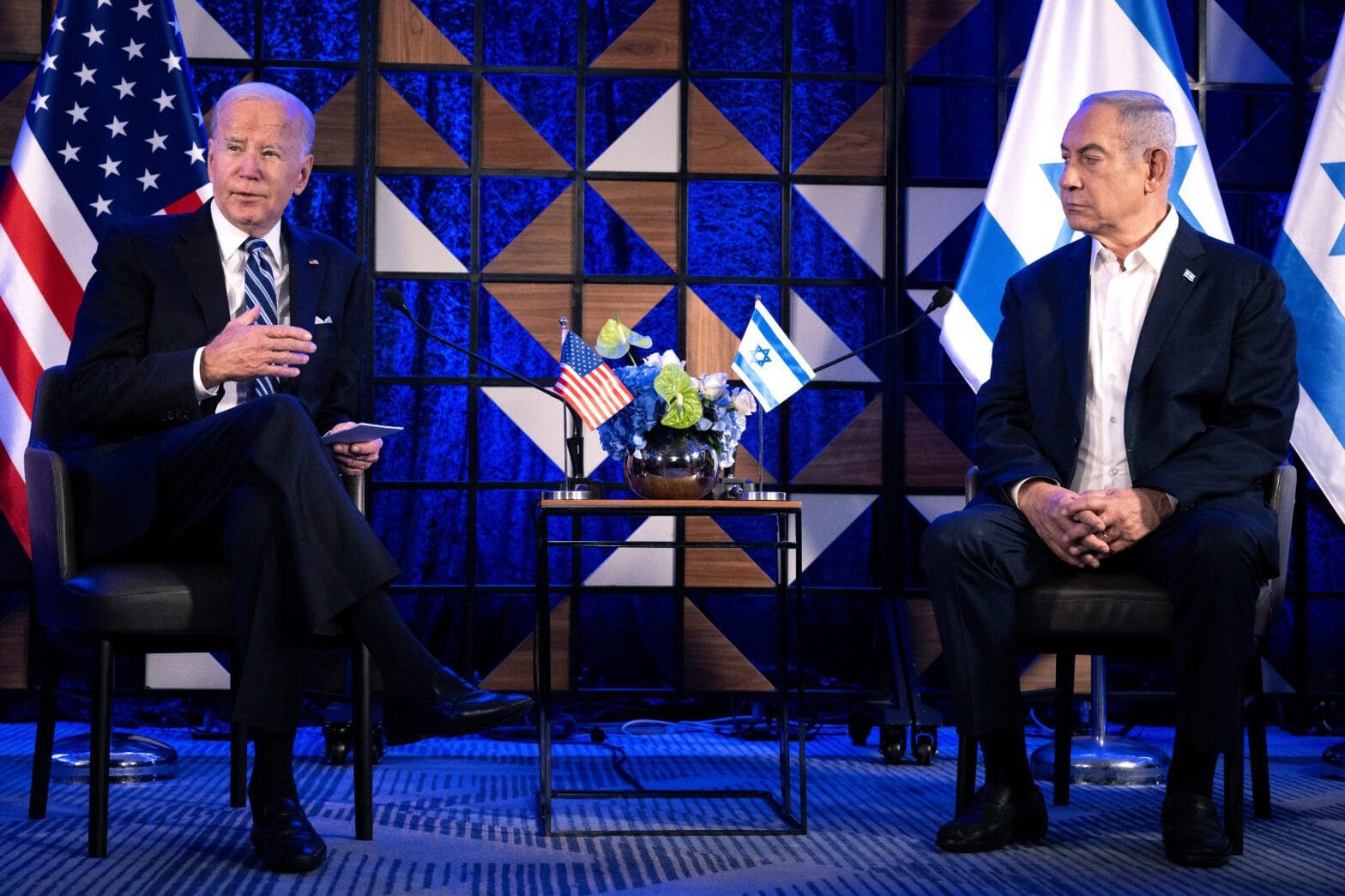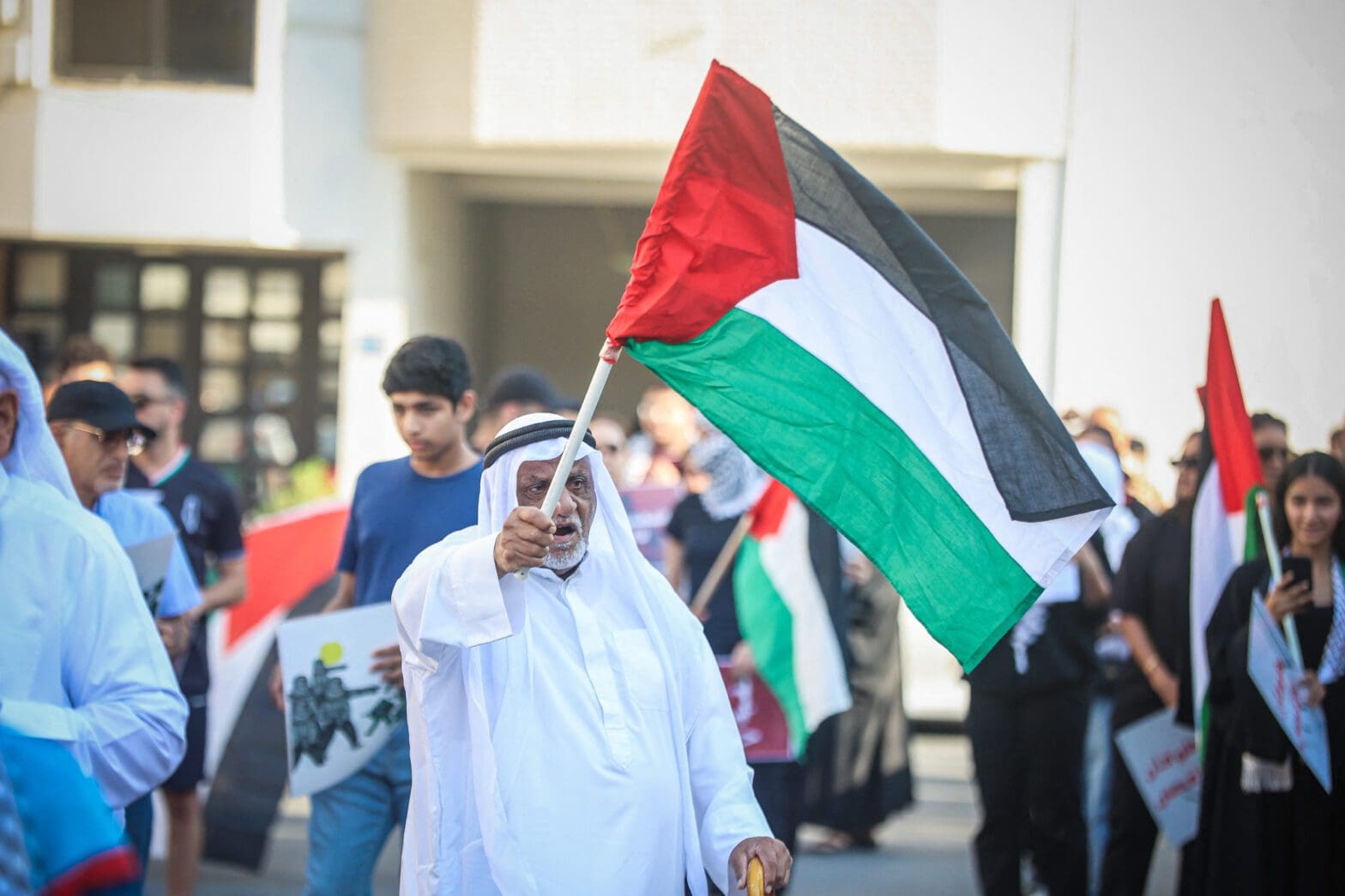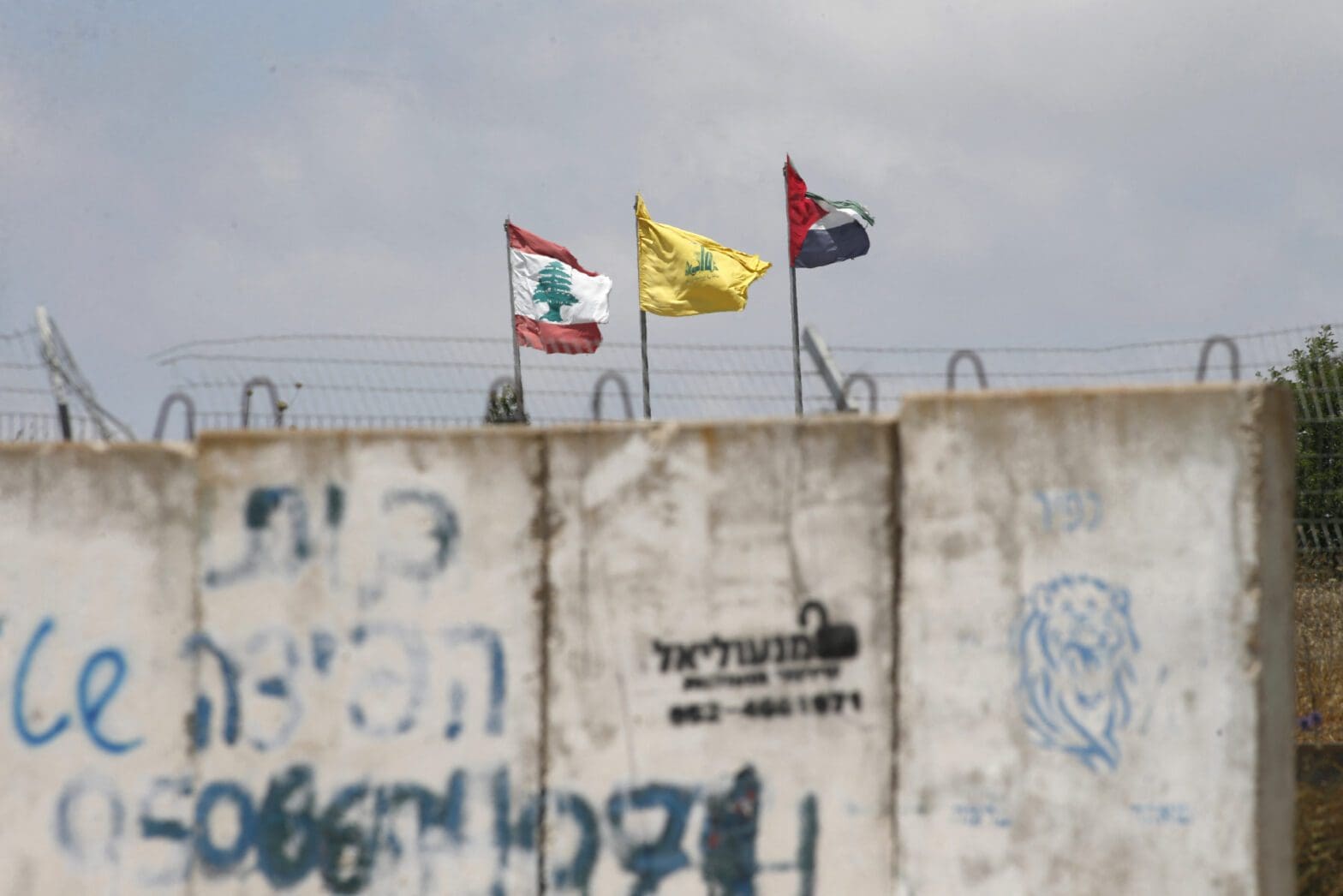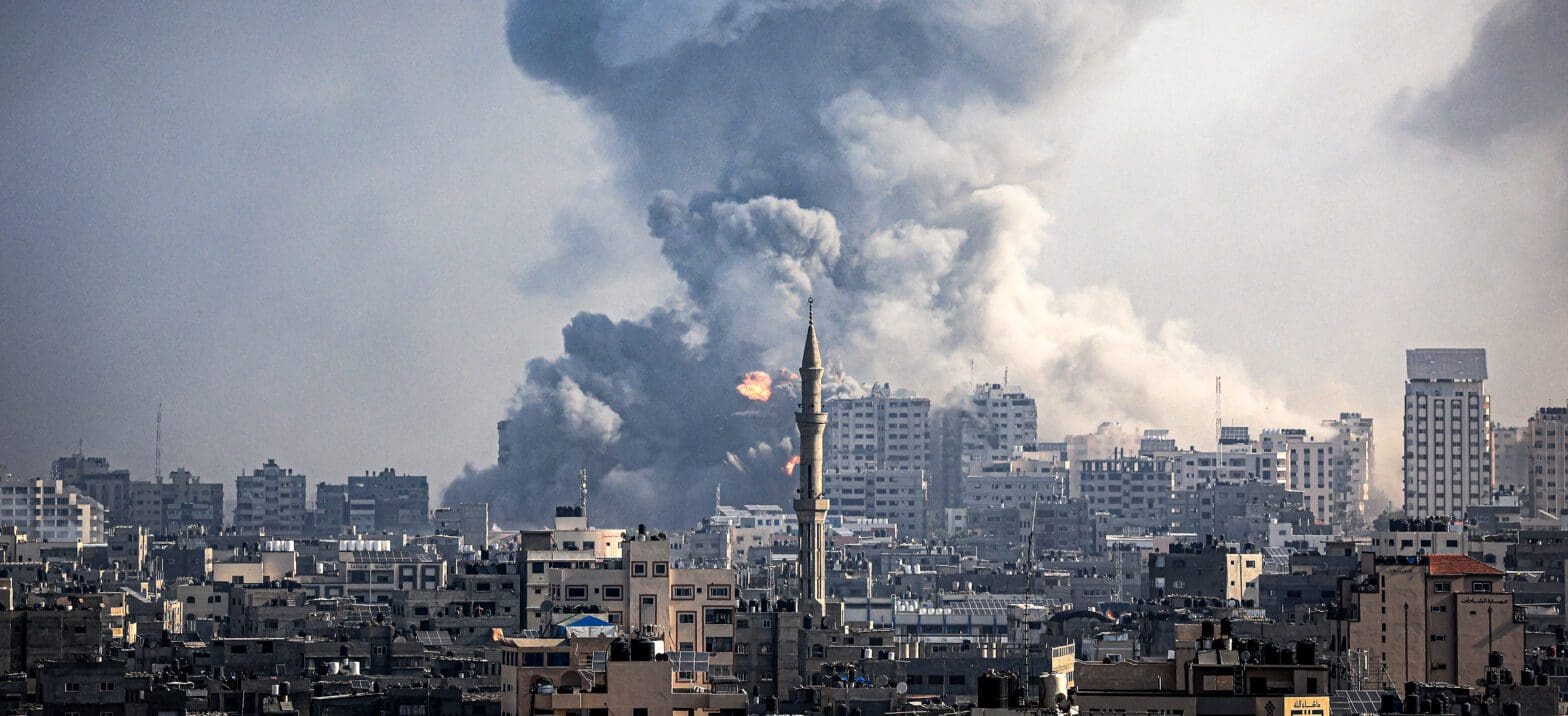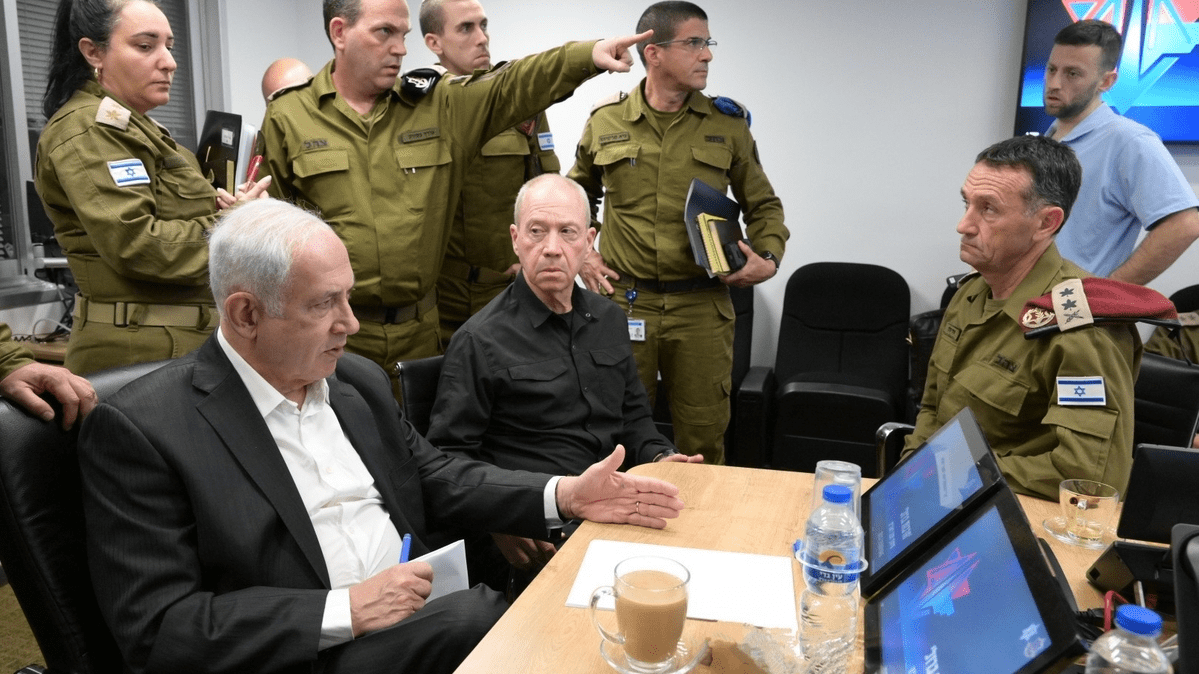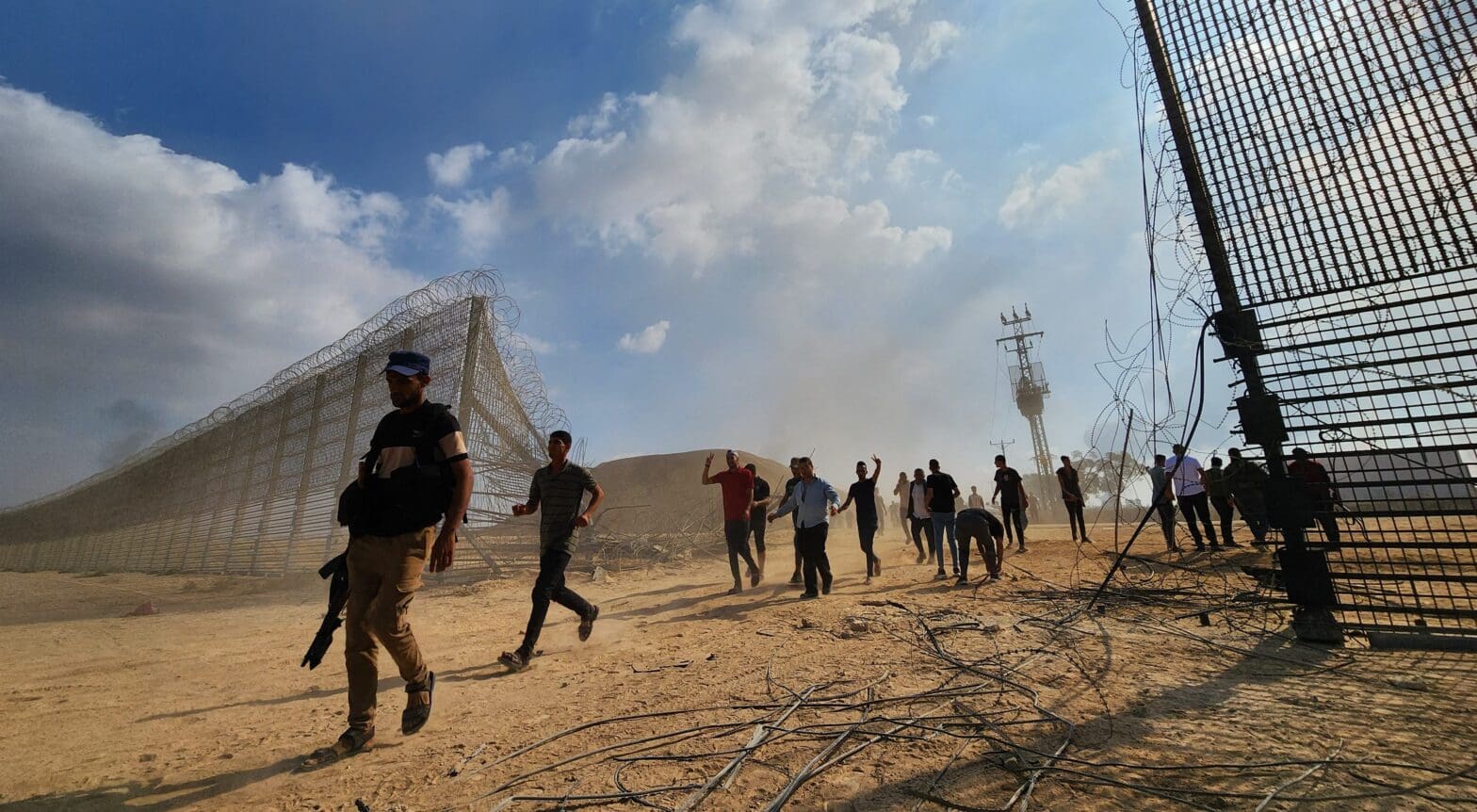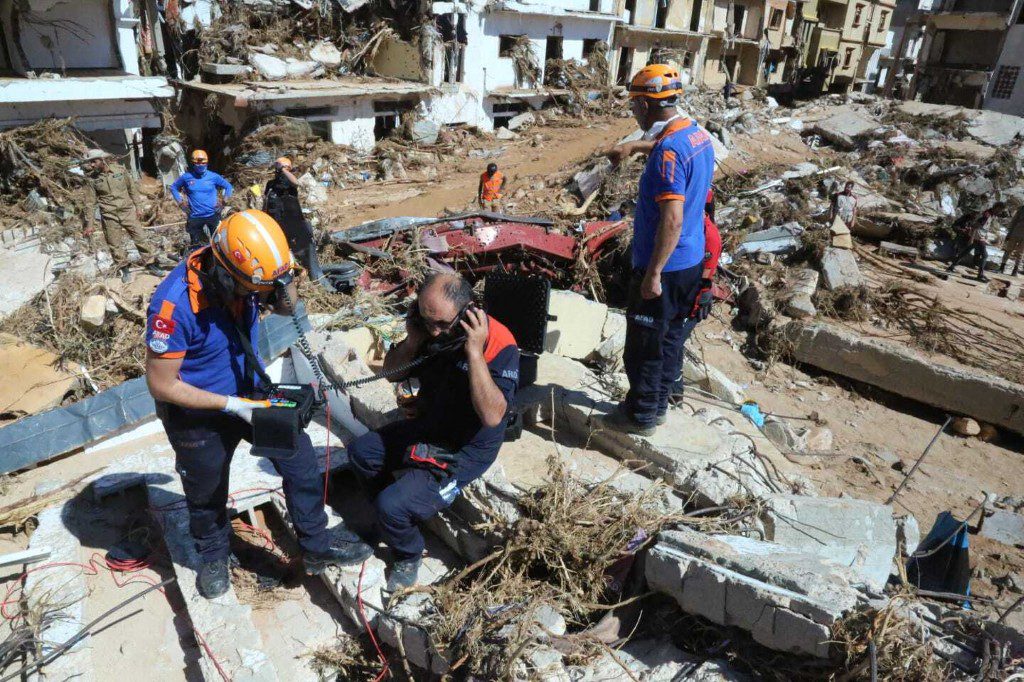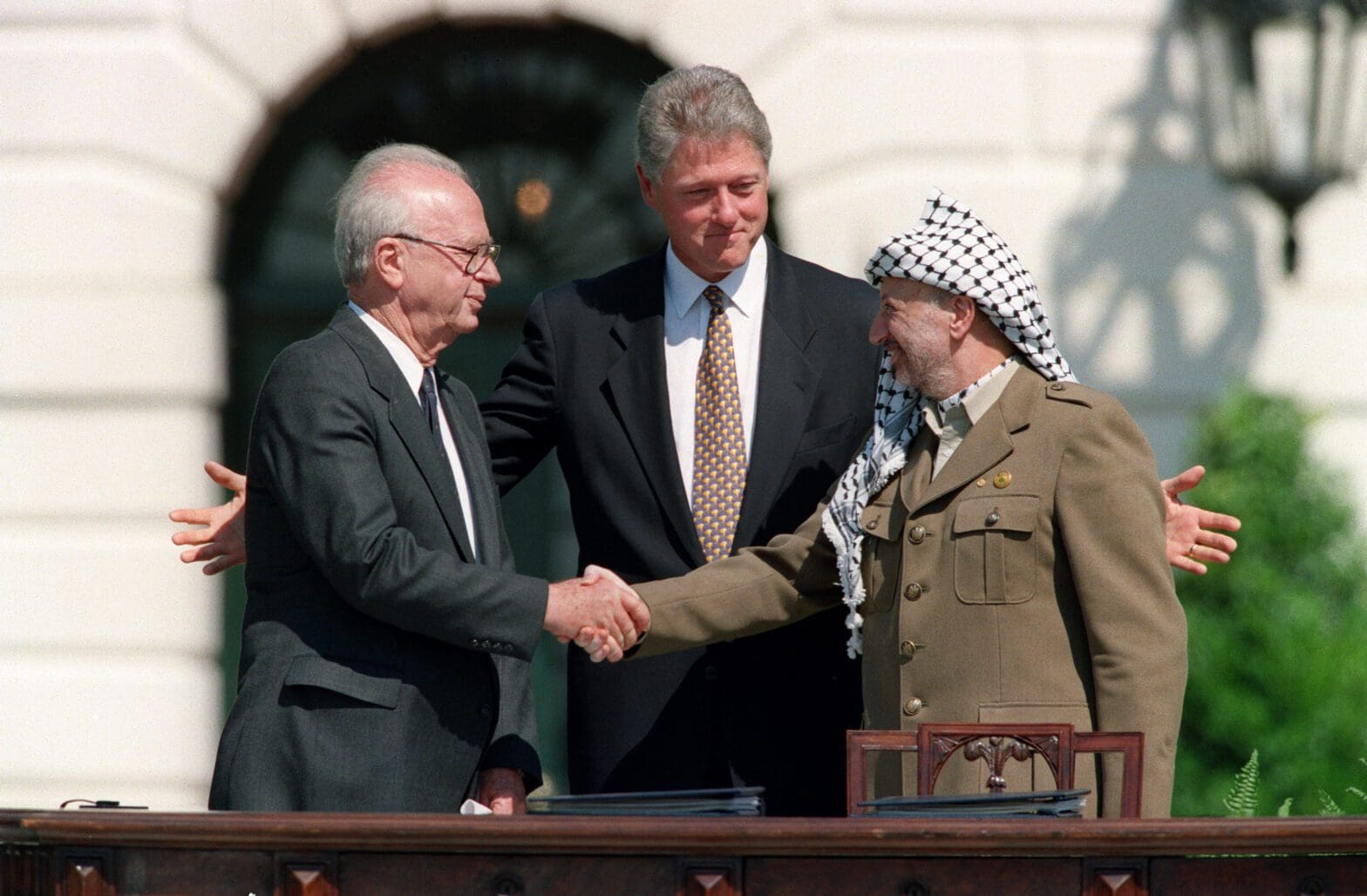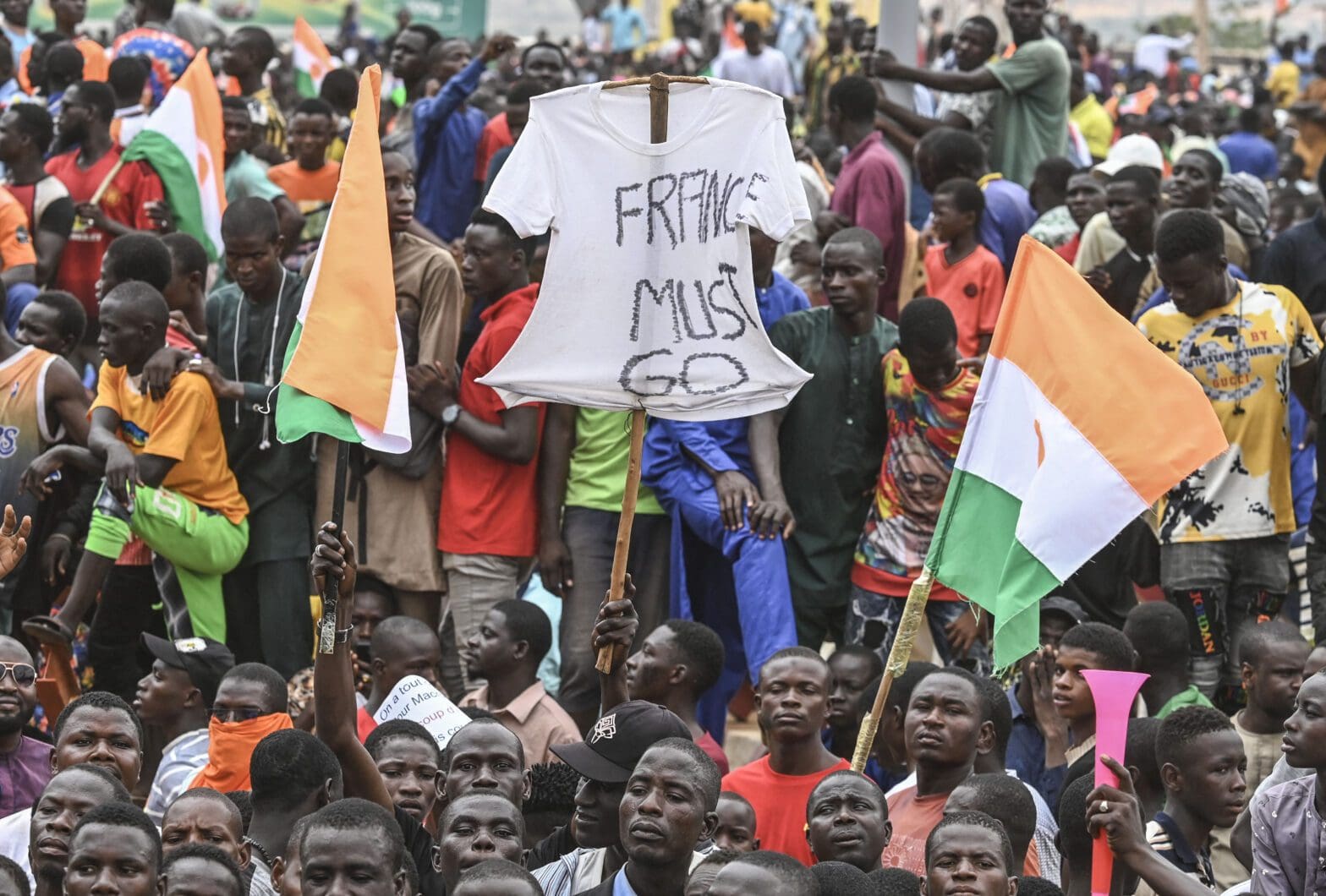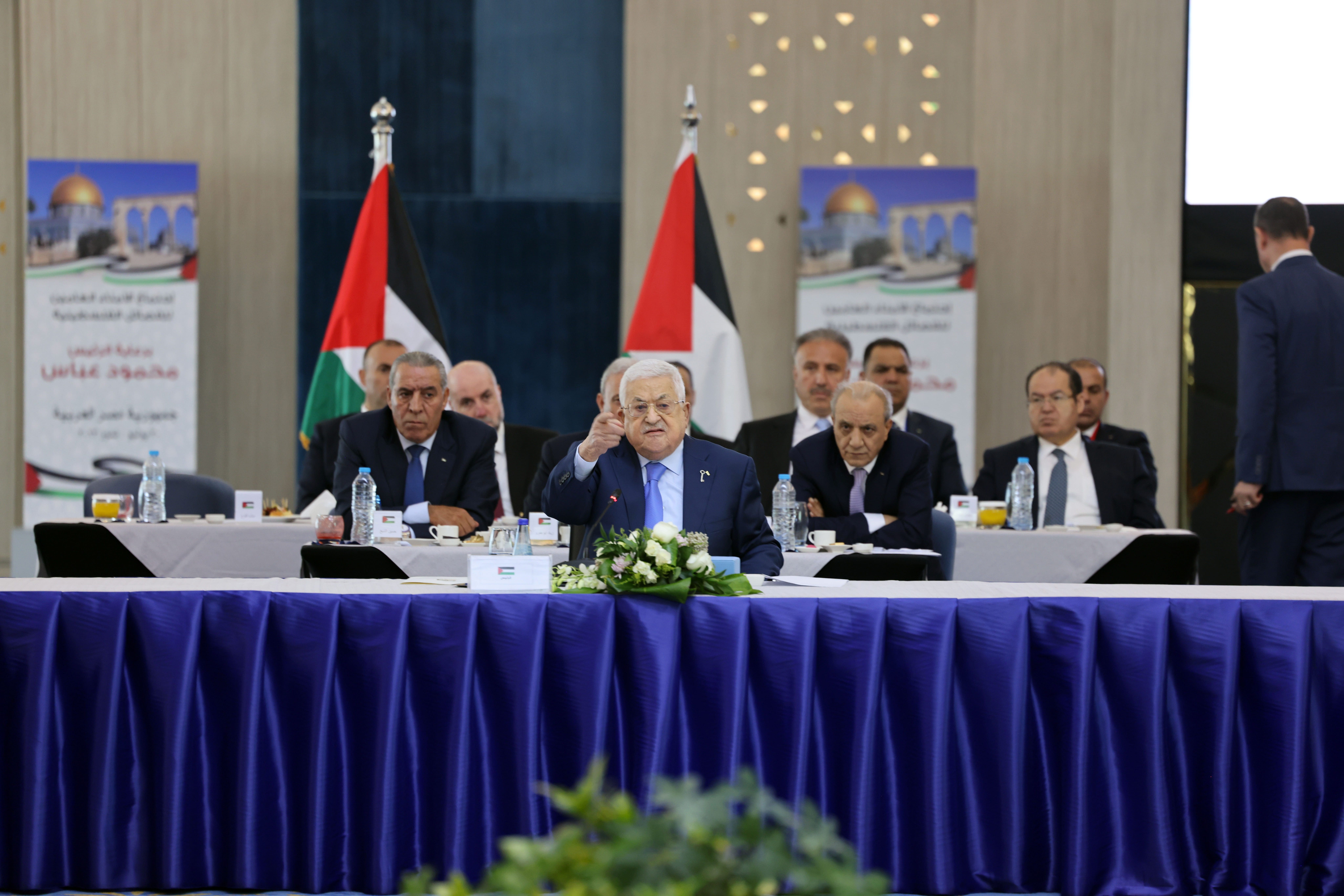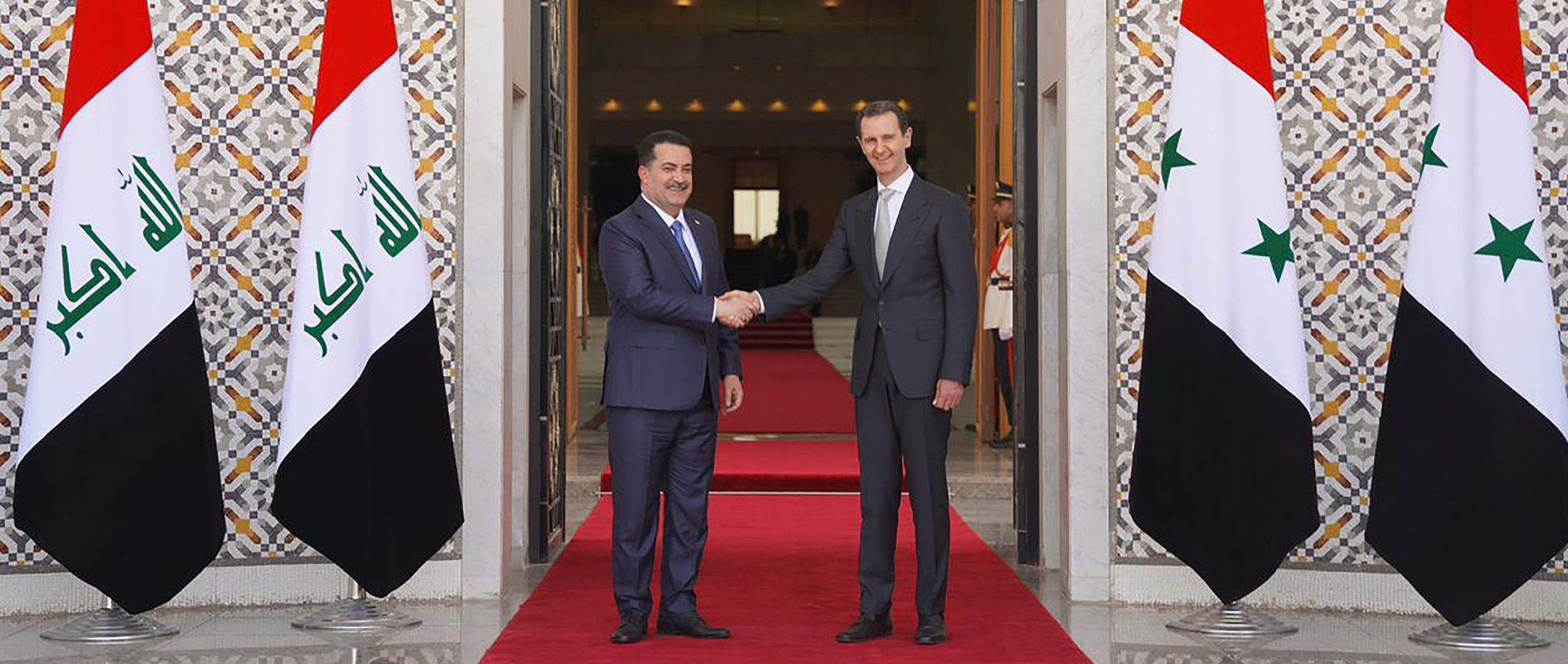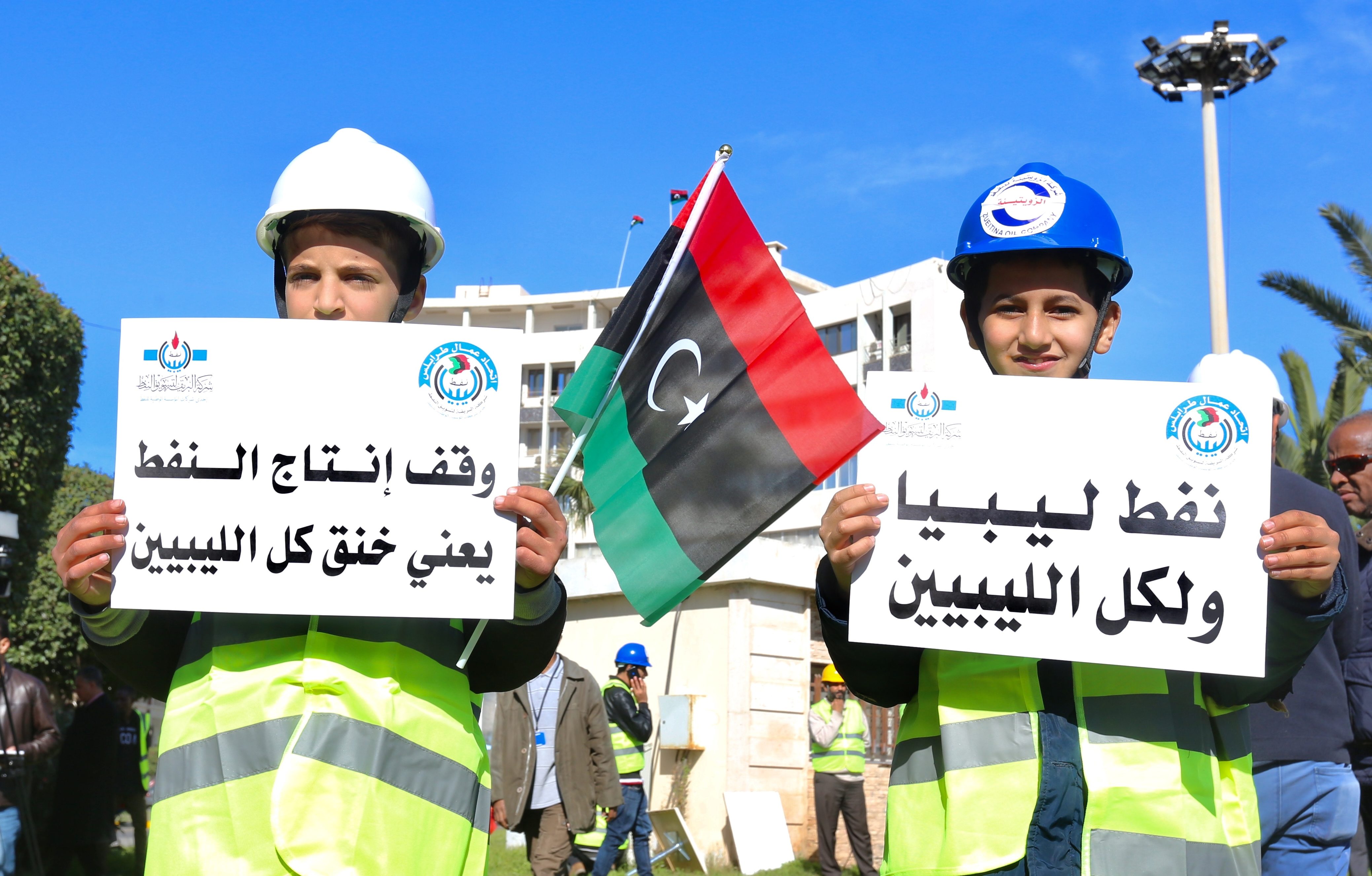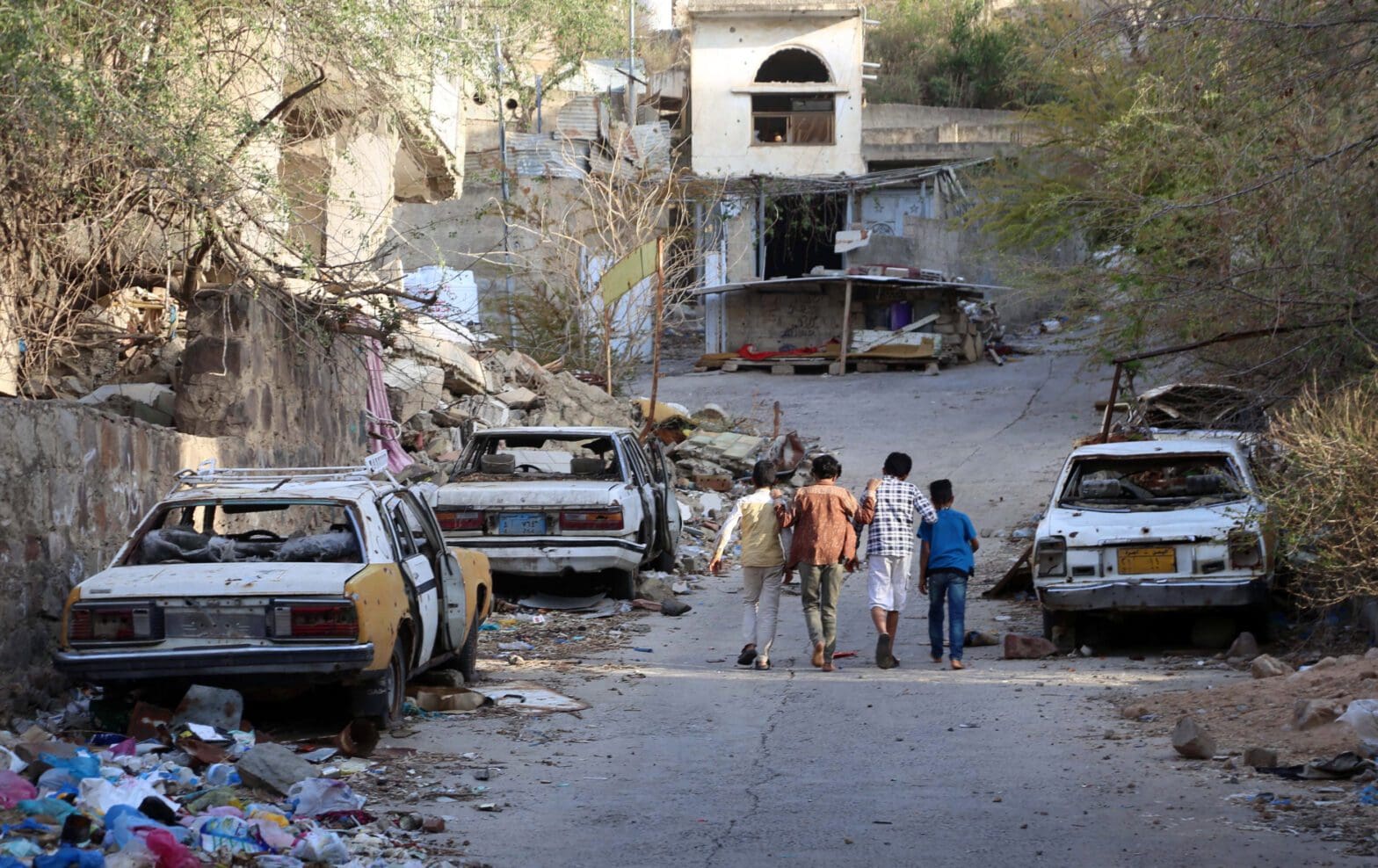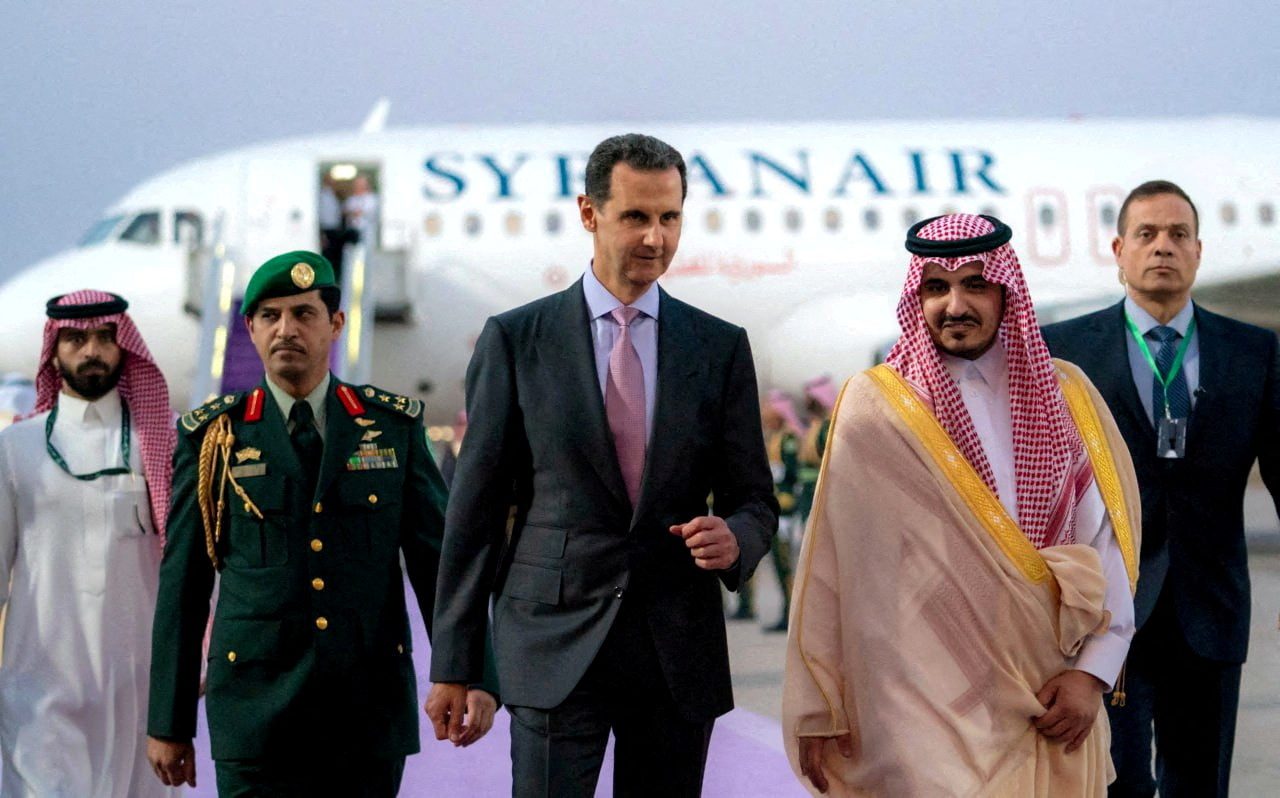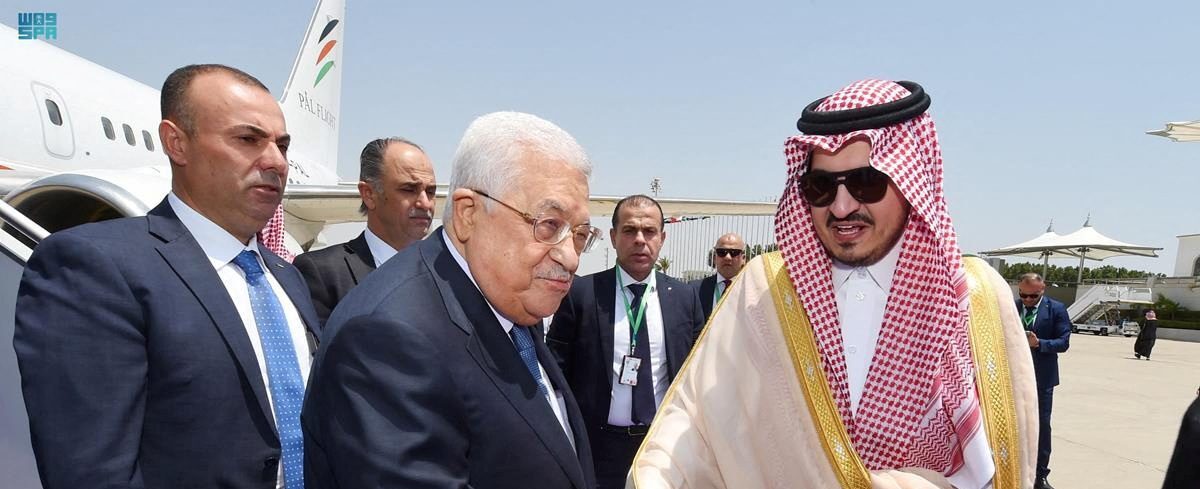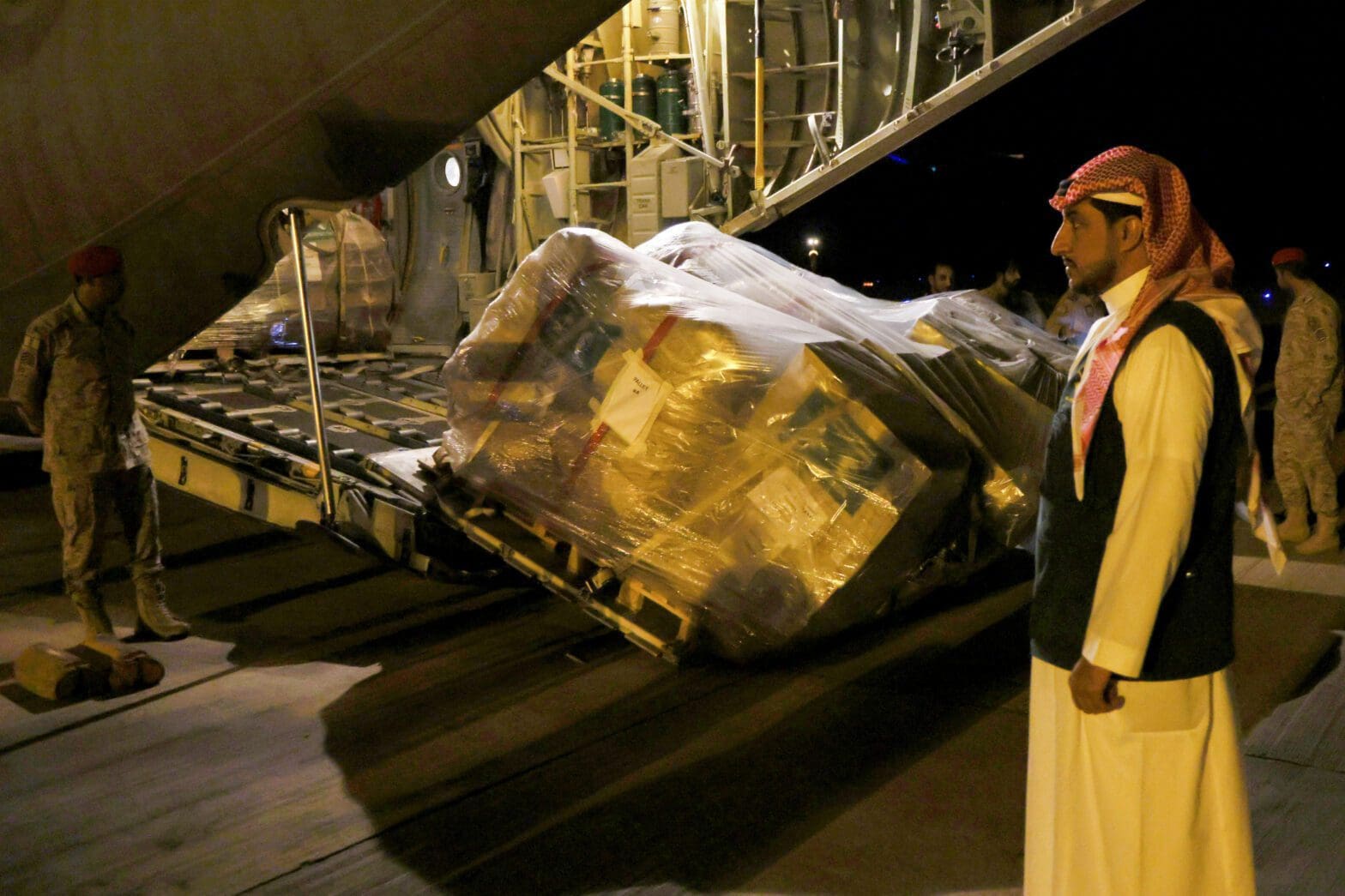The first-year anniversary of the fall of Syria’s Assad regime is a moment that invites celebration: The end of 54 years of Baathist rule and the conclusion of a 14-year civil war that took thousands of lives, displaced more than half the population, and shattered the country’s physical and social foundations. Syrians have much to… Continue reading Syria, One Year On, Is Still Emerging From the Rubble of War
Afkar Issue: Civil War
As Sudan’s War Shifts, Atrocities Surge and Diplomacy is Tested
The balance of power in Sudan’s war appears to be shifting, and with it has come a horrifying expansion of atrocities against the country’s long-suffering civilian population. On October 26, the paramilitary Rapid Support Forces (RSF) conquered the city of El Fasher, the capital of Darfur and the last stronghold of the Sudan Armed Forces… Continue reading As Sudan’s War Shifts, Atrocities Surge and Diplomacy is Tested
How Syria’s New Government Risks Undermining Itself
The recent violence in Syria’s Sweida province has presented the caretaker government with the strongest challenge to its authority and legitimacy since the fall of the Assad regime in December. It began with an act of petty crime, when a Bedouin gang allegedly robbed a Druze merchant. This in itself was not unprecedented; Sweida’s Bedouin… Continue reading How Syria’s New Government Risks Undermining Itself
Israel’s Attack on Damascus is a Sign of Its Increasing Frustration and Belligerency
On July 16, the Israeli army launched a massive air strike against the Syrian Defense Ministry, killing at least three people. The strike represents a dramatic escalation against key institutions of a sovereign state, following two days in which the Israeli army targeted Syrian military convoys moving south. While Israel claims that the strikes are… Continue reading Israel’s Attack on Damascus is a Sign of Its Increasing Frustration and Belligerency
Syria’s Opening with the West Poses Russia Dilemma for Damascus
Since President Donald Trump’s Gulf tour in mid-May, U.S.-Syria relations have evolved significantly. Washington’s lifting of its most crippling sanctions on Syria, the appointment of an American envoy to the country, Trump’s meeting with Syrian President Ahmed al-Sharaa in Riyadh and the reopening of the U.S. ambassador’s residence in Damascus all illustrate a new reality… Continue reading Syria’s Opening with the West Poses Russia Dilemma for Damascus
Civilians in the Crosshairs as RSF Escalates Sudan War with Drone Barrage
Port Sudan was never meant to be a frontline. For two years, the coastal city had stood apart from Sudan’s raging civil war—a rare refuge, an administrative hub and the last functioning gateway to the outside world. That illusion shattered in May. In a stunning escalation, the Rapid Support Forces (RSF) launched a wave of drone strikes on… Continue reading Civilians in the Crosshairs as RSF Escalates Sudan War with Drone Barrage
Syria Needs Full Sanctions Relief to Truly Rebuild
On May 13, U.S. President Donald Trump announced that he would lift all U.S. sanctions on Syria. The announcement, made during his historic visit to Saudi Arabia, was a miraculous reprieve for the people of Syria, who had been struggling to rebuild their country after a devastating 14-year civil war. On May 20, European Union… Continue reading Syria Needs Full Sanctions Relief to Truly Rebuild
In Tripoli, A War on Militias Quickly Becomes a War of Militias
In the Libyan capital Tripoli, change is rarely peaceful or linear. This was starkly demonstrated once again in mid-May, when what like seemed a strategic victory for Prime Minister Abdul Hamid Dbeibah quickly spiraled into the latest in the country’s long string of political and military crises. The episode began when Abdelghani al-Kikli, the head… Continue reading In Tripoli, A War on Militias Quickly Becomes a War of Militias
In Engaging the Haftars, Türkiye Makes Pragmatic Shift in Libya
Türkiye’s welcome of Saddam Haftar, son of eastern Libya’s de facto ruler Khalifa Haftar, was laden not only with ceremony but with implications for the North African country’s delicate balance of power. Walking down the red carpet in Ankara on April 4, the commander of land forces in his father’s self-styled Libyan Arab Armed Forces… Continue reading In Engaging the Haftars, Türkiye Makes Pragmatic Shift in Libya
Seizing the Moment for Peace in Syria
As the Trump administration begins pulling U.S. troops out of Syria and openly mulling its long-term future there, the Syrian Democratic Forces (SDF)—a Kurdish-led coalition force—may soon lose its most important military and political backer. This possibility, and the wider geopolitical shifts it could bring, was likely a major factor in SDF General Commander Mazloum… Continue reading Seizing the Moment for Peace in Syria
Two Years In, Sudan War Shows Little Sign of Ending
As Sudan’s brutal civil war enters its third year, political and military developments on the ground have sparked speculation that a turning point may be near. But a closer look reveals a bleaker reality: an end to the conflict, whether through a political settlement or military victory, remains distant. More worrying, the recent shifts have… Continue reading Two Years In, Sudan War Shows Little Sign of Ending
Rebuilding Forever: Lessons of our failures
*This article is the second part in a two-part series. Read Part 1 here. If Syria’s Arab Spring forerunners have a fundamental lesson to impart, it is that achieving a symbiosis between a revolution’s leadership and its public is required to successfully transmute a deposed tyranny into a nation of self-determination and the representative state… Continue reading Rebuilding Forever: Lessons of our failures
Call to Disband PKK Reshapes Türkiye, Syria Power Dynamics
The consequences of the call by the founder of the Kurdistan Workers’ Party (PKK), Abdullah Ocalan, for the group to disband are still reverberating—not just in Türkiye but also in the wider region. Shifting alliances in Syria—exemplified by the recent agreement between the Kurdish-led Syrian Democratic Forces (SDF) and the Syrian government—confirm that Ocalan’s message… Continue reading Call to Disband PKK Reshapes Türkiye, Syria Power Dynamics
For Syria, Lessons from Our Past Failures
The Assad family, like so many tyrannies before them, allowed their power, impunity, isolation and the resultant narcissism to foster a belief that their world would never end. Assad’s supporters—both for the father, Hafez, and the son, Bashar—would chant “our leader forever.” Until the day inevitably came when their rule ended and people sang, “forever… Continue reading For Syria, Lessons from Our Past Failures
Fast-Moving Geopolitical Dynamics Challenge Yemen and the Houthis
The fall of the Assad regime in Damascus represents a critical turning point in the geopolitical landscape of the Middle East. Beforehand, Syria functioned as a strategic link supporting Iranian influence from Tehran to Beirut and onwards to Yemen’s capital, Sanaa, making it a crucial component in the so-called “Axis of Resistance.” Recent setbacks to… Continue reading Fast-Moving Geopolitical Dynamics Challenge Yemen and the Houthis
The Art of Disruption: How Trump’s Foreign Policy is Impacting MENA
Since returning to office on January 20, 2025, Donald Trump has issued 67 executive orders, more than double any other president in American history. Given that some of those orders have serious implications for the Middle East and North Africa, Afkār has compiled views from Middle East Council on Global Affairs scholars to analyze some… Continue reading The Art of Disruption: How Trump’s Foreign Policy is Impacting MENA
Will Trump Remove Syria’s New Rulers from America’s Foreign Terrorist List?
Since 1997, the U.S. State Department has compiled a catalog of organizations it considers foreign terrorists. The FTO list, as it is known, has become a powerful tool in Washington’s “war on terror,” by subjecting parties on the list to the weight of American delegitimization and economic sanctions. Moreover, the qualification and threshold for being… Continue reading Will Trump Remove Syria’s New Rulers from America’s Foreign Terrorist List?
Assad’s Fall in Syria Poses Serious Questions Inside Iraq
Recent developments in Syria, including the fall of the Assad regime, Iran’s failure to quell the rebel advance into Damascus and subsequent withdrawal of its proxies from the country, have generated shockwaves in neighboring Iraq. For the first time in Iraq’s post-2003 political history, the prospect of breaking Iran’s outsized influence over the Iraqi state… Continue reading Assad’s Fall in Syria Poses Serious Questions Inside Iraq
MENA Outlook for 2025
With the December collapse of the Assad regime in Syria, 2024 came to a close in a dramatic and region-altering fashion. This, along with the numerous other major trend lines and points of conflict, likely makes 2025 a year that will be significant in reshaping the region’s future. Looking forward to what may be coming,… Continue reading MENA Outlook for 2025
Today Syrians Celebrate, Tomorrow the Real Work Begins
On December 8, the world awoke to stunning news. Overnight, rebel forces led by Hayat Tahrir al-Sham (HTS) had taken Damascus, facing little resistance as they entered the Syrian capital. Most of the state’s security agents and armed forces simply abandoned their positions and walked away. In an instant, the Assad regime’s fifty-four-year brutal rule… Continue reading Today Syrians Celebrate, Tomorrow the Real Work Begins
As Syria Heats Up, Türkiye Finds Itself in the Spotlight
The sudden and dramatic developments in northern Syria—beginning in the outskirts of Idlib and surrounding villages near Aleppo and culminating in Syria’s second largest city falling into rebel hands—have thrust Türkiye—widely seen as the closest external power to the rebel factions—into a spotlight it neither sought nor fully avoided. The speed and ease with which… Continue reading As Syria Heats Up, Türkiye Finds Itself in the Spotlight
Sudan’s Dam Disaster: Where Climate Change Meets War
The deadly collapse of a dam in Sudan following torrential rains has highlighted the country’s perilous position at the nexus of a devastating conflict and the climate crisis. The Arbaat Dam burst on August 25, destroying 20 villages and severely damaging dozens more, displacing thousands of people and cutting off critical supply routes. The flooding,… Continue reading Sudan’s Dam Disaster: Where Climate Change Meets War
Libya’s Central Bank Crisis Reflects Its Broken System
Libya’s latest political standoff, this time over who should head the country’s central bank, has once again highlighted the chronic dysfunction that has plagued the country since the 2011 overthrow of Moammar Gaddafi. Libya’s political economy, militarized and bedeviled by foreign interference, is broken: unsuitable even for Libya’s rival leaders, incapable of constraining them, and… Continue reading Libya’s Central Bank Crisis Reflects Its Broken System
Border Crossing Struggle Reflects Chronic Instability in Western Libya
Nearly four months after it closed due to armed clashes between rival Libyan groups, the Ras Ajdir crossing with Tunisia finally reopened on July 1. Located 170 kilometers (105 miles) west of war-torn Libya’s capital, Tripoli, the main land crossing into its western neighbor is a vital lifeline for trade—both official and illicit. But it… Continue reading Border Crossing Struggle Reflects Chronic Instability in Western Libya
Unification of Monetary Policy and the Banking Sector in Yemen
Amid the ongoing state of “no-war, no-peace” that has persisted for the past two years, Yemen faces a new challenge that threatens to further unsettle its fragile stability. The country’s banking sector is experiencing turmoil following a series of controversial decisions made by the breakaway Central Bank in Aden, signaling potentially catastrophic consequences for an… Continue reading Unification of Monetary Policy and the Banking Sector in Yemen
EU Aid for Syrian Refugees: Addressing Ongoing Needs in Türkiye and Lebanon
In late May of this year, the European Union and other international donors pledged €7.5 billion ($8 billion) in grants and loans to support millions of Syrians displaced within and beyond the country’s borders by a devastating 13-year civil war. The seemingly vast sum pledged at the Brussels conference on “Supporting the future of Syria… Continue reading EU Aid for Syrian Refugees: Addressing Ongoing Needs in Türkiye and Lebanon
A Succession of Coups Leaves the Sahel Prey to International Rivalries
When Niger’s military rulers decided to put an end to the presence of American armed forces on the country’s territory in May, the move was met with dismay in Washington. Niger, in the heart of the Sahel region south of the Sahara Desert, is host to two major bases the United States had long used… Continue reading A Succession of Coups Leaves the Sahel Prey to International Rivalries
Another Catastrophe Hangs Over Darfur
Two decades after mass atrocities for which justice has never been served, the capital of North Darfur teeters on the brink once again. El-Fasher is the last of five state capitals in Sudan’s vast Darfur region that has not fallen to the paramilitary Rapid Support Forces (RSF) in the course of the country’s war. Vulnerable to… Continue reading Another Catastrophe Hangs Over Darfur
The Middle East in the Wake of October 7: Interview with Tarik M. Yousef Marking 100 Afkār Posts
We at Afkār are delighted to announce that we have reached a new milestone, our 100th post! To mark the occasion, we have recorded and transcribed a special interview with the Director of the Middle East Council on Global Affairs, Tarik M. Yousef. The in-depth interview was conducted by our editor, Omar H. Rahman, and… Continue reading The Middle East in the Wake of October 7: Interview with Tarik M. Yousef Marking 100 Afkār Posts
Security Sector Reform: An Exercise in Futility?
Since the onset of the post-October 7 regional escalation, the ascension of militia groups has had increasingly visible implications for global security. This has been highlighted by the Houthi attacks in the Red Sea, which have had far-reaching consequences for the global economy. However, the Houthis—an armed political movement controlling most of Yemen—represent only one… Continue reading Security Sector Reform: An Exercise in Futility?
Winning the Peace in the Middle East’s Fragile State
The military escalation since the start of the war in Gaza on October 7 highlights the vulnerability of the Middle East and North Africa (MENA) to a relapse of conflict, potentially in a conflagration that could engulf the region at large. Over years of devastating intra-state conflicts and proxy wars in Iraq, Syria, Libya, and… Continue reading Winning the Peace in the Middle East’s Fragile State
Houthis Involvement in Gaza War: A Tactical Move?
Yemen’s Houthi rebels have emerged as an unlikely player in the unfolding war in the Gaza Strip. On November 19, Houthi fighters hijacked a cargo ship in the Red Sea and took its crew hostage, citing the vessel’s association with Israeli business interests. On December 3rd, they attacked two Israeli commercial ships. The group, officially… Continue reading Houthis Involvement in Gaza War: A Tactical Move?
Myth-Makers Cannot Hide Palestine’s Truth
The latest round of the Palestine-Israel conflict has lasted more than three weeks and, judging by the reluctance on the Israeli side for a truce, will continue for a long time. Despite the uncertainties of the endgame, the implications are already visible, one of which is that the Palestine issue has come back to the… Continue reading Myth-Makers Cannot Hide Palestine’s Truth
Egypt and the Fear of a “Second Nakba”
As Israel steps up its brutal attack on the Gaza Strip with a ground invasion, a recently leaked concept paper from it’s Ministry of Intelligence adds to the mounting evidence that its ultimate goal is the forcible and permanent displacement of the besieged Gazans into neighboring Egypt’s Sinai Peninsula. In what effectively amounts to a… Continue reading Egypt and the Fear of a “Second Nakba”
Gaza Crisis puts US’ Unipolarity Push in Doubt
Zhai Jun, China’s Special Envoy on the Middle East affairs, is on a trip to the region to push for a cease-fire between Israel and Hamas. In his remarks at the Cairo Summit for Peace on the Palestinian Question on October 21, Zhai called for support for “the Palestinian people in restoring their lawful national… Continue reading Gaza Crisis puts US’ Unipolarity Push in Doubt
Gulf Normalization Under Strain as Israel Pounds Gaza
Since an unprecedented conflict flared between Israel and Hamas on October 7, the Arab Gulf states have been working to de-escalate and prevent the crisis from sparking a catastrophic regional war dragging in Iranian allies such as Hezbollah in Lebanon, armed groups in Syria and Houthi rebels in Yemen. Yet while the GCC states agree… Continue reading Gulf Normalization Under Strain as Israel Pounds Gaza
Lebanon Treads a Narrow Path to Avoid Regional War
Two weeks into the unfolding crisis in Palestine-Israel, and Lebanon is edging ever closer to the abyss of a war it cannot afford to fight. While there is a narrow, difficult path to avoid this outcome, options are dwindling with each passing day and the prospect of an escalation that consumes the region looms large. … Continue reading Lebanon Treads a Narrow Path to Avoid Regional War
The Hamas Raid and Israel’s Onslaught of Gaza
On October 7, Hamas shocked the world by carrying out an astonishing raid on Israel that killed around 1,300 people, most of them civilians, and taking an estimated 150 others hostage. The Israeli response has been devastating. For a week, Israel has indiscriminately bombarded Gaza from the sky, destroying residential buildings, hospitals, schools, and other… Continue reading The Hamas Raid and Israel’s Onslaught of Gaza
Operation Al-Aqsa Flood Exposes a Massive Israeli Intelligence Failure
Operation Al-Aqsa Flood, a sophisticated and deadly campaign by Hamas militants deep inside Israeli territory, represents a massive failure by Israel’s defense, security, and intelligence community. The Shin Bet domestic intelligence agency, Israeli Military Intelligence, and Mossad all failed to pick up on the group’s extensive planning, training, and supply activities as it prepared the… Continue reading Operation Al-Aqsa Flood Exposes a Massive Israeli Intelligence Failure
Hamas’ “Al-Aqsa Flood” Will Leave Nothing Untouched
*Editor’s note: At the time of publication, only 100 Israelis were reported to have been killed. This number would rise to 1,139. In the early morning hours of October 7, scores of Hamas fighters launched a dramatic and unprecedented land, air and sea attack on Israel. Coming a day after the 50th anniversary of… Continue reading Hamas’ “Al-Aqsa Flood” Will Leave Nothing Untouched
Türkiye Leverages Derna Relief to Reconcile with Eastern Libya
When catastrophic flooding and the collapse of two dams ripped the heart of eastern Libya’s Derna into the Mediterranean on the night of September 10, Türkiye was quick to respond. The Turkish Ministry of Defense announced that it was sending two warships to Libya carrying 360 personnel, including members of the state disaster-management agency AFAD,… Continue reading Türkiye Leverages Derna Relief to Reconcile with Eastern Libya
Palestinians Continue to be Haunted by the Ghosts of Oslo
A decade after the initial Oslo Accord was signed in 1993, public opinion on the process it spawned was divided between those who believed it was a promising initiative to achieve Israeli-Palestinian peace that was tragically derailed, and those who insisted that it lacked the rudimentary elements of a meaningful peace process. Today, those who… Continue reading Palestinians Continue to be Haunted by the Ghosts of Oslo
A Military Intervention in Niger Would Deepen the Sahel’s Woes
July’s military coup against Niger’s pro-western President Mohamed Bazoum has sparked a complex crisis with momentous consequences for the entire region. The latest in a string of military power-grabs across the Sahel, it has drawn a particularly sharp reaction from former colonial power France, which has forces stationed in the country—ostensibly to fight Islamist militants—and… Continue reading A Military Intervention in Niger Would Deepen the Sahel’s Woes
The Persistent Illusion of Palestinian Reconciliation
Representatives of 14 Palestinian political factions, including Fatah and Hamas, were invited to the Egyptian coastal city of El-Alamein on July 30, 2023 for reconciliation talks hosted by Egyptian President Abdel Fattah el-Sisi. Facing challenges from the recurrent and increasingly violent onslaught by Jewish settlers and Israeli occupation forces throughout the West Bank since the beginning of… Continue reading The Persistent Illusion of Palestinian Reconciliation
Syria Is Back, But Normalization Has Its Limits
The visit of Iraq’s prime minister to Damascus in July was the latest sign that Syria is mending ties with its neighbourhood, more than a decade after the Arab League suspended its membership over its brutal repression of anti-government protests. As the country’s catastrophic civil war settles, the regime of Bashar al-Assad can chalk up… Continue reading Syria Is Back, But Normalization Has Its Limits
Libyan Effort to Clean Up State Finances Sidesteps Deeper Issues
As political tensions in Libya simmer amid fresh uncertainty over elections, the Libyan Presidency Council recently moved to address another issue at the heart of the country’s divisions. Only July 6, the Tripoli-based body announced it was establishing a High Financial Oversight Committee, with sweeping responsibilities to oversee Libya’s vital oil revenues, scrutinize government budgets… Continue reading Libyan Effort to Clean Up State Finances Sidesteps Deeper Issues
Will Yemen’s New Hadramout Council Lead to Federalism or More Fragmentation?
The creation of a new governing council for Yemen’s largest province could mark a key moment in the country’s nine-year civil war. The Hadhramout National Council (HNC) was unveiled in late June after meetings between influential actors from across the vast eastern province, as well as Western ambassadors, under Saudi auspices. The council, set to… Continue reading Will Yemen’s New Hadramout Council Lead to Federalism or More Fragmentation?
How Does Iran View Syria’s Return to the Arab League?
In May 2023, Syria returned to the Arab League following a near-12-year suspension. The move has far-reaching implications for both the region and the international community. It came after more than a decade of widespread atrocities by Bashar Al-Assad’s regime against its own citizens, abuses that have cast a long shadow over Syria’s relationships with… Continue reading How Does Iran View Syria’s Return to the Arab League?
Will the Saudi-Iran Rapprochement change anything for the Palestinians?
Amid the zeitgeist of diplomatic rapprochement and normalization in the Middle East—which has recently seen Saudi Arabia and Iran mend ties and Syria’s Bashar al-Assad welcomed at this month’s Arab League summit—the Palestinian Islamist movement Hamas took a step forward to repair its own regional relationships. In mid-April, a delegation of senior Hamas officials, led… Continue reading Will the Saudi-Iran Rapprochement change anything for the Palestinians?
Saudi Arabia and the UAE on Edge as Generals Battle It Out in Sudan
As Sudan’s two main armed forces battle for control of Khartoum, hopes for a truce may lie on the other side of the Red Sea. Saudi Arabia has been holding talks in Jeddah reportedly focused on reaching a ceasefire and ensuring aid can reach those affected by the fighting, which has already killed hundreds of… Continue reading Saudi Arabia and the UAE on Edge as Generals Battle It Out in Sudan

